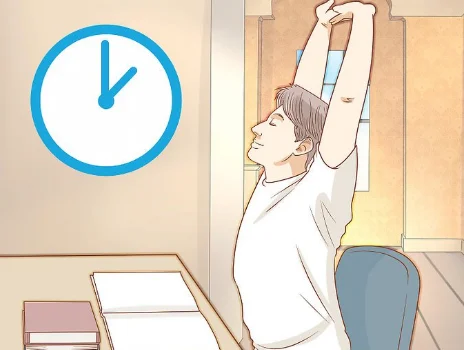Why Can’t I do My Homework With Solutions

- Post author By admin
- August 30, 2023
Struggling with homework? Explore common challenges for why can’t I do my homework. From procrastination to focus issues, discover how to tackle ‘Why Can’t I Do My Homework’ head-on.
Imagine this: You’re cozied up at your desk, surrounded by textbooks, with a daunting pile of homework staring you down. Your brain feels like it’s taken a vacation, and you can’t help but wonder, “Why can’t I do my homework?”
If that scenario sounds familiar, welcome to the club! We’ve all been there, and it’s like homework has this magical power to turn us into amateur detectives trying to solve the case of the vanishing motivation.
But here’s the good news: you’re about to embark on a journey to demystify the reasons behind the “homework struggle.” Think of us as your friendly tour guides, here to unravel the mysteries, expose the culprits, and offer you some killer strategies to conquer the homework conundrum.
So, get ready to uncover why homework sometimes feels like a cryptic puzzle and learn how to transform it from a dreaded chore into a manageable mission. It’s time to dive in, have some fun, and crack the code on “Why can’t I do my homework?”
Table of Contents

Why Can’t I Do My Homework?
There are numerous reasons why someone might struggle with completing their homework. Here’s a list of common factors that can contribute to the challenge of “Why can’t I do my homework?”
Overwhelming Workload
A heavy workload can leave students feeling buried under a mountain of assignments. For instance, imagine a high school student juggling multiple advanced classes, each assigning substantial homework.
The sheer volume of work can be intimidating and make it difficult to manage time effectively, leading to incomplete or rushed homework.
Lack of Motivation
When a topic doesn’t spark interest, motivation can dwindle. Consider a student who loves history but dreads algebra.
The excitement for history homework may result in diligent completion, while the algebra assignment might be delayed or avoided due to lack of enthusiasm.
Procrastination
Procrastination is the art of delaying tasks until the last possible moment. Take, for instance, a college student who decides to binge-watch a TV series instead of starting their term paper.
This can result in a panic-induced rush to complete the paper, often leading to subpar work.
Distractions
An environment filled with distractions, like a noisy dorm room or a bustling café, can hinder concentration.
For example, a university student trying to study for an important exam in a crowded coffee shop may struggle to focus amidst the cacophony.
Time Management Issues
Poor time management can mean allocating too little time for homework. Consider a scenario where a student spends too much time on social media or extracurricular activities, leaving minimal time for academic tasks.
Difficulty Understanding the Material
If a student struggles to grasp concepts from class, completing homework becomes an uphill battle. For instance, a high school student may find calculus homework challenging if they don’t comprehend the underlying principles taught in class.
Fear of Failure
The fear of not meeting expectations can create anxiety around homework. Imagine a college student afraid of disappointing their parents with low grades. This fear can paralyze them, making it difficult to start or complete assignments.
Personal Problems
Personal issues such as family conflicts or relationship problems can be emotionally draining. Suppose a high school student is experiencing family troubles; their emotional distress may make it nearly impossible to focus on homework.
Health Issues
Physical or mental health problems can impact the ability to concentrate on homework. For example, a college student dealing with depression may lack the energy and motivation to complete assignments.
Perfectionism
Striving for perfection can lead to excessive time spent on a single assignment. Think of a high-achieving student who meticulously edits and revises an essay, constantly second-guessing themselves and ultimately missing deadlines.
Lack of Resources
Insufficient access to study materials or a quiet study space can hinder homework completion. Suppose a student lacks internet access at home for research purposes; this limitation can impede their ability to complete assignments that require online resources.
Language Barriers
For students learning in a non-native language, understanding and completing assignments in that language can be especially challenging.
For instance, an international student may struggle with English-language assignments, leading to slower progress.
Negative Peer Influence
Peer pressure can tempt students to prioritize social activities over homework. Imagine a high school student invited to a party on a homework-heavy night; the temptation to attend the party may lead to incomplete assignments.
Learning Disabilities
Students with learning disabilities, such as dyslexia, may require specialized support to complete their homework effectively. Consider a student with dyscalculia attempting math homework without the necessary accommodations, which can result in frustration and incomplete work.
Teacher-Student Mismatch
Sometimes, a student’s learning style doesn’t align with the teaching style of a particular teacher, making homework more challenging.
For example, a student who learns best through hands-on activities may struggle with a teacher who primarily uses lectures for instruction.
Lack of Interest in the Subject
If a student lacks interest in a particular subject, they may find it hard to motivate themselves to do the associated homework.
For instance, a high school student passionate about literature may struggle to engage with physics assignments, leading to procrastination.
Lack of Support
Some students lack a support system at home or school and may not have someone to turn to for help when they’re stuck on a problem.
Imagine a middle school student without access to a tutor or supportive parents; they might struggle to complete challenging assignments independently.
Insufficient Feedback
Without timely feedback from teachers, students may struggle to understand their mistakes and improve. Consider a scenario where a college professor rarely provides feedback on assignments; students may miss the opportunity to learn from their errors, leading to repeated difficulties.
Test Anxiety
Worrying about upcoming tests can distract students from focusing on their homework. Think of a high school student with a major exam approaching; their anxiety about the test may lead to procrastination or difficulty concentrating on other assignments.
Environmental Factors
Living in a noisy or chaotic environment can make it challenging to concentrate on homework. For instance, a university student sharing a small apartment with roommates who frequently host loud gatherings may struggle to find a quiet space for focused study.
Lack of a Structured Routine
A lack of a structured routine can lead to inconsistency in homework completion. Imagine a college student without a regular schedule; their homework habits may become erratic, impacting productivity.
Financial Stress
Students facing financial stress may need to work part-time jobs, leaving less time and energy for homework.
Suppose a college student must work long hours to cover tuition costs; this can result in exhaustion and insufficient time for assignments.
Technology Addiction
Excessive use of technology for non-educational purposes can interfere with homework completion. Consider a high school student addicted to online gaming; this addiction may lead to prolonged screen time and delayed homework.
Lack of Rewards
When students don’t see rewards or benefits from doing their homework, they may question its value. Think of a middle school student who receives no feedback or recognition for completed assignments; this lack of positive reinforcement can diminish their motivation.
Excessive workload and high expectations can lead to burnout, making it impossible to approach homework with enthusiasm. Suppose a college student takes on a heavy course load, participates in extracurricular activities, and works part-time; this overwhelming schedule can result in burnout and reduced productivity.
These factors illustrate the diverse challenges students face when tackling homework. It’s essential to recognize that homework struggles are not uncommon, and they can result from a combination of these factors.
Identifying the specific obstacles at play is the first step toward finding effective strategies to overcome them and enhance the homework experience.
| : |
What to do if I can’t do my homework?
Have a close look at what to do if I can’t do my homework.
Prioritize tasks based on deadlines and difficulty. Break the workload into smaller, manageable chunks, focusing on one subject at a time.
Find ways to make the assignment more engaging. Connect it to your interests or future goals. Set rewards for completing tasks.
Set clear goals and deadlines. Use techniques like the Pomodoro method to work in short, focused intervals with breaks.
Create a dedicated study space free from distractions. Consider noise-cancelling headphones to block out external noise.
Use planners or digital tools to schedule study sessions and allocate time for each assignment. Stick to the schedule.
Seek help from teachers, tutors, or online resources. Break down complex topics into smaller, more understandable parts.
Shift your focus from perfection to learning. Remember that making mistakes is part of the learning process. Seek support from teachers or counselors.
Communicate with teachers about personal challenges. Consider counseling or therapy to manage emotional stress.
Prioritize self-care. Seek treatment if needed, and communicate with teachers about health-related limitations.
Set realistic goals and time limits for assignments. Aim for improvement rather than perfection.
Utilize online resources, libraries, and educational websites. Ask teachers for additional materials if necessary.
Seek language support resources, such as language classes or tutoring. Use language learning apps to improve proficiency.
Set boundaries with friends and communicate your homework commitments. Prioritize academic responsibilities.
Work with school counselors to access appropriate accommodations and support.
Adapt your learning style by seeking additional resources and discussing challenges with the teacher.
Find relevance in the subject by exploring real-world applications or connecting it to personal interests.
Reach out to teachers, classmates, or academic support services for assistance. Join study groups for collaborative learning .
Request feedback from teachers or peers, and actively seek ways to improve.
Practice relaxation techniques, such as deep breathing, before studying and tests. Seek test anxiety management strategies.
Create a peaceful study environment. Consider studying at a library or during quieter times at home.
Establish a daily routine that includes specific homework times. Stick to it consistently.
Balance work commitments with schoolwork. Seek support from school financial aid or scholarships.
Use apps and tools to block distracting websites during study sessions. Set screen time limits.
Set personal rewards for completing homework, such as enjoying a favorite snack or watching a short video.
Prioritize self-care, including sufficient sleep, exercise, and relaxation. Adjust your workload to prevent overexertion.
By tailoring these strategies to your specific challenges, you can significantly improve your ability to tackle homework effectively and reduce stress associated with assignments.
Remember that seeking support from teachers, counselors, or peers is a sign of strength, not weakness, and can be a valuable resource in overcoming these challenges.
Why wont my brain let me do my homework?
Ah, the age-old struggle of the brain resisting homework – we’ve all been there! Here’s why your noggin might be playing hard to get, and some tips to outsmart it:
If the homework feels about as exciting as watching paint dry, your brain’s probably hitting the snooze button. Try making it more interesting – relate it to something you’re into, or break it down into bite-sized, less yawn-inducing chunks.
If you’ve been in the procrastination party, your brain’s probably protesting your last-minute panic. Set a schedule, try the Pomodoro Technique (work for 25 minutes, break for 5), and chip away at it bit by bit.
In today’s digital circus, distractions are the headliners. Your brain might prefer cat videos to calculus. Create a study sanctuary, and consider apps that block Facebook or Instagram when you’re in study mode.
When the homework pile looks like Mount Everest, your brain’s understandably in panic mode. Prioritize your tasks, tackle them one by one, and suddenly, it feels like a series of small hills instead.
Lack of Understanding
If the material’s about as clear as mud, homework’s a no-go. Don’t hesitate to ask for help – teachers, tutors, and that nerdy friend are your allies.
Stress or Anxiety
Stress and anxiety can make your brain do a vanishing act when it’s homework time. Try some Zen techniques like deep breathing or a quick jog to shake off the nerves.
A tired brain’s like a grumpy toddler – it won’t cooperate. Ensure you’re well-rested, eating right, and staying hydrated. A happy brain is a productive brain.
Just remember, homework resistance is a universal experience. The trick is finding your unique hacks to outsmart your brain’s games and make the homework mountain a molehill. You’ve got this!
Why can’t I just do my homework ADHD?
Why is it so darn tough to buckle down and tackle homework when you’ve got ADHD in the mix? Well, let’s break it down.
Attention Difficulties
With ADHD, concentrating on a single task can feel like herding cats. Homework might seem about as interesting as watching paint dry, making it extra tough to stay focused.
Impulsivity
Your brain might hop from one thought to another like a ping-pong ball, leaving homework in the dust. This impulsivity can make starting and finishing assignments a real challenge.
Hyperactivity
Sitting still for ages? Yeah, not exactly your ADHD brain’s favorite activity. That restlessness can make homework time feel like a marathon of discomfort.
Executive Functioning Woes
ADHD can throw a wrench in your executive functions – the stuff that helps you stay organized, manage time, and prioritize tasks. These skills are like homework superheroes, and when they’re not cooperating, it’s tough.
Frustration and Anxiety
Repeated homework battles can lead to frustration and anxiety. It’s like a vicious cycle – homework is hard, so you avoid it, which makes it even harder the next time.
But hey, you’ve got some tricks up your sleeve
Break It Down
Chop your homework into bite-sized bits. Completing these mini-goals feels like winning small battles in the war against procrastination.
Routine, Routine, Routine
A structured routine can be your secret weapon. Set specific homework times and stick to ’em. It’s like training your brain to get into homework mode.
No Distractions Allowed
Clear your workspace of distractions. Shut off those pesky notifications, use website blockers, and let your family or roommates know when you’re in “focus mode.”
Visual Aids
Visual tools are your buddies. Calendars, to-do lists, and color-coding can help you wrangle your tasks and keep track of time.
Take Breathers
Short, regular breaks can help you recharge. Ever heard of the Pomodoro Technique? Work for 25 minutes, then chill for 5 – it’s science!
Treat Yourself
Reward yourself after finishing a task. It’s like giving your brain a high-five for a job well done.
Talk to the Pros
If you haven’t already, chat with a pro about ADHD treatments like medication and therapy. They can be total game-changers.
Get Support
Don’t hesitate to reach out to teachers or counselors for extra help or accommodations. You’re not in this alone.
Remember, homework and ADHD might be a challenging combo, but you’re not powerless. With these strategies and some support, you can take on the homework dragon and come out victorious!
Alright, fellow homework adventurers, we’ve journeyed deep into the realm of “Why can’t I do my homework?” and uncovered a treasure trove of challenges that can turn homework time into a real quest.
But here’s the secret sauce: every challenge we explored has a potential solution. From taming procrastination monsters to battling the distractions dragon and seeking the wisdom of mentors (a.k.a. teachers), we’ve armed ourselves with knowledge and strategies to conquer these homework foes.
So, the next time you’re stuck with a tricky assignment and that question pops up, remember this journey. Homework isn’t an unsolvable riddle; it’s a puzzle waiting for you to unlock. With determination, a pinch of motivation, and a dash of support, you can transform homework into a rewarding adventure.
Now, go forth, young scholar, armed with newfound wisdom, and may your homework quests be filled with curiosity, growth, and the sweet taste of victory!
Frequently Asked Questions
What can i do to overcome homework procrastination.
Procrastination can be overcome by breaking tasks into smaller, manageable parts and setting realistic deadlines. Creating a quiet, organized study space can also help.
How Can I Improve My Time Management for Homework?
To improve time management, use tools like planners or apps to schedule study sessions. Prioritize tasks and avoid multitasking to stay focused.
Is Getting Homework Help Considered Cheating?
Getting help with understanding homework concepts or solving difficult problems is not cheating. It’s a valuable part of the learning process. However, copying someone else’s work is unethical.
What Should I Do If I Don’t Understand My Homework?
If you don’t understand your homework, don’t hesitate to ask for help. Reach out to your teacher, a tutor, or classmates for clarification.
How Can Parents Support Their Children with Homework?
Parents can support their children by creating a conducive study environment, setting a regular homework routine, and offering assistance when needed. Encouragement and positive reinforcement are also crucial.
- australia (2)
- duolingo (13)
- Education (284)
- General (78)
- How To (18)
- IELTS (127)
- Latest Updates (162)
- Malta Visa (6)
- Permanent residency (1)
- Programming (31)
- Scholarship (1)
- Sponsored (4)
- Study Abroad (187)
- Technology (12)
- work permit (8)
Recent Posts

- Published on September 15, 2022
- September 15, 2022
How to Focus on Homework and Actually Get Things Done: 12 Hacks for Busy Students

Jump to section

Chances are, you’ve had some days when you felt overwhelmed after a long day at school. You couldn’t imagine doing anything other than plopping down in front of the television, let alone finding out how to focus on your homework.
How can you overcome the resistance and get it done? How do you get your mind to include this task in your day as well?
With just a few adjustments, you will be able to expand your capacity to concentrate.
Why Can’t I Focus on My Homework?
Countless factors constantly fight for your attention : social media, people, overthinking, and anxiety. All of this can make you feel as though you have little control over your mind.
If you want to start to focus better on your homework, you’ll need to set your mind up for success. Remove all distractions .
Here are two key principles that can help you be more successful in your studies:
1. Identify the distractions in your surroundings
What are the things in your daily life that take your mind away from your studies? Clearly identifying these distractions can help you understand both the problem and what causes it.
Among our environmental distractions, digital distractions are one of the worst kinds, and according to a number of studies , their effect is on the rise in the classroom.
If you’re looking to gain more concentration and, thus, form better study habits, question your online behavior first and foremost.
2. Limit the use of technology to find focus
What’s the role of social media in your daily life? Have you ever sat down to calculate how social media distracts you from doing the things you should be doing?
When you are wondering how to focus on homework long after you’ve put your phone away, you’re still thinking about the last posts you saw on Instagram. The sound of new notifications can be enough to reroute our attention from the task at hand.
And then comes the information overload, the fear of missing out, and the all-too-common signs of addictive behavior. Technology is affecting your mind more than ever, and it’s taking your focus away.

How to Focus on Homework: 12 Things You Can Do to Be More Indistractible
Here are 12 tips on how to stay focused while completing your homework, taught by superbrain coach Jim Kwik and habit transformation expert Nir Eyal .
- Make a routine
- Set up a study-friendly environment
- Avoid heavy meals
- Organize your study notes
- Tell others to stay away
- Listen to study music
- Set deadlines
- Take brain breaks
- Use discomfort as motivation for productivity
- Use time blocking
- Let go of thoughts that distract you
- Reimagine your task
Let’s look at each study hack in more detail.
1. Make a routine
Routines help you be productive without exerting as much effort. When you have homework to do, a study routine can be the reason you actually sit down, set enough time aside, concentrate, and stay focused until you complete the project.
This process doesn’t need to be complicated: just tell yourself that you will sit at your desk at home once you’re back from school. Put your phone on silent, make an outline of the work that needs to get done, and simply begin with what’s most important.
2. Set up a study-friendly environment
A place for everything and everything in its place. That applies to studying, too.
Lying in bed with your notebook is considered a distraction, as is being in the living room with your laptop while others are doing their activities.
You need an isolated place when you decide to focus on your homework. Make it feel comfortable, keep it organized, keep it clean, and consider putting up some motivational posters or positive affirmations .
3. Avoid heavy meals
It’s not advisable to have a big meal beforehand. Big meals can ruin your focus and make you feel sluggish and lazy because it takes a big amount of time and energy for your body to digest. A snack is okay.
There are also some foods , though, that are just plain bad for your productivity. For example, soda, candy, and fried foods are all full of sugar and have no nutritional value. They make your insulin spike up, but then it crashes very fast, which makes you feel depleted of energy.
4. Organize your study notes
Prioritize your work. Keep lists and place the most important items on top. Then work on the items that you should get done first.
It helps to outline what you need to do, breaking it down into smaller, more manageable steps. Use colors to highlight the essentials .
This makes it all look much simpler and you’re more likely to actually get started. The brain loves organization and it won’t be so likely to procrastinate when it knows you have a structure set in place.
5. Tell others to stay away
Don’t be afraid to let others know that you’re studying and require some time and space to get your work done. Decide on fixed hours for studying and tell your friends and family members that you won’t be available during that time of the day.
If others respect your study time, you’ll be more inclined to respect it as well.
6. Listen to study music
There are many tracks out there designed to help your mind focus. Whether you use binaural beats or just instrumental music, the right sounds can really help to tune your brain into a productive frequency.
This meditation is also great to listen to; it puts your mind in a clear, concise, and ready-to-take-on-the-world mode:
7. Set deadlines
Even if your teacher has already given you deadlines for each assignment, set new ones yourself at earlier dates.
This helps you build discipline, learn how to focus on studying, and prioritize every day.
8. Take brain breaks
Frequent breaks actually increase your productivity and focus. You’ll see that after each study session, the brain needs to be engaged with something different — you need to activate other parts of your brain before going back to your studies so that you can reach top performance.
You can also use the Superbrain Yoga Technique. In the Superbrain Quest, Jim talks about implementing it during your breaks. It goes as follows:
- Massage the left lobe of your ear with your right hand, and the right one with your left hand
- Inhale and squat down
- Exhale and come back up while continuing massaging your opposite ear with the opposite hand
- Keep going for a few minutes
As your body moves, your brain grooves. — Jim Kwik, trainer of Mindvalley’s Superbrain Quest
9. Use discomfort as motivation for productivity
The brain is wired to protect us from danger, and our ancestors needed this function of the psyche to survive. Discomfort is associated with danger, and whenever they felt it, they knew it was time to run away or protect themselves in one way or another.
In today’s world, danger isn’t so imminent. However, discomfort is, and the brain still works to protect us in the same way.
So why not use it to your advantage?
Once you have this mindset shift, you can see the discomfort that comes with doing your homework as fuel for moving forward, from pain to pleasure. So instead of procrastinating and avoiding the discomfort, just use it as motivation to get things done.
And maybe you can even save yourself a fun activity to do later in the day, so you have something to look forward to.
10. Use time blocking
You can use time blocking and set a specific amount of time for parts of your homework that needs to be done. For example, you block 30 minutes of reading, then another 30 minutes of writing down highlights from the text.
This method will give you more structure and support you when you need to focus on school work, as you will have a dedicated structured time to do so.
11. Let go of thoughts that distract you
When you need more concentration, but your thoughts keep getting in the way, here’s a fun visualization exercise you can use:
- Before you start working on your homework, close down your eyes and imagine a flowing river in front of you.
- Now, place every thought on a leaf and let it run down the river while watching it move away from you.
Do this repeatedly for 5-10 minutes and see how your mind becomes clearer, more productive, and more inspired.
12. Reimagine your task
How can you make the process of doing your homework more fun? Is there any way you can think of to make it more exciting and engaging?
As you introduce play and fun into any task, your capacity to stay focused will increase. So just try out different methods to engage more in your homework.
For example, what if you made a trivia quest about your history lesson homework? Or what about riddles to make you remember all the characters from the novel you have to read?
Once you play around with these kinds of games, you might find that focusing on your homework isn’t as boring as you thought it would be.
Unleash the Power of Your Focus
Discovering how to focus on your homework can go beyond schoolwork and actually support you in many other activities you want to do. Concentration is one of the best skills to nurture for your growth.
If you need a little guidance at the beginning of your focusing journey, Mindvalley has it in store for you.
By unlocking your FREE Mindvalley access , you can check out sample classes from quests that help you develop better focus and study habits, such as Becoming Focused and Indistractable by Nir Eyal and Superbrain by Jim Kwik. You can also immerse yourself in beautiful sounds and guided meditations designed to improve concentration and help you enter the flow state.
The earlier you start, the greater your journey of self-discovery will be. Welcome in.
— Images generated on Midjourney.
Watch a free masterclass

Discover Powerful Hacks to Unlock Your Superbrain to Learn Faster, Comprehend More and Forget Less
Join the foremost expert in memory improvement and brain performance, Jim Kwik, in a free masterclass that will dive into the one skill you will ever need — learning how to learn Enroll for free
Alexandra Tudor
Jim Kwik is a brain coach and a world expert in speed reading, memory improvement, and optimal brain performance.
Known as the “boy with the broken brain” due to a childhood injury, Jim discovered strategies to dramatically enhance his mental performance.
He is now committed, through programs like Mindvalley’s Superbrain and Speed Reading Quest , to helping people improve their memory, learn to speed-read, increase their decision-making skills, and turn on their superbrain.
He has also shared his techniques with Hollywood actors, Fortune 500 companies, and trailblazing entrepreneurs like Elon Musk and Richard Branson to reach their highest level of mental performance. He is also one of the most sought-after trainers for top organizations like Harvard University, Nike, Virgin, and GE.
How we reviewed this article
Study: digital distraction in class is on the rise, you might also like.

Get Started
- Try Mindvalley for Free
- Free Masterclasses
- Coaching Certifications
- Vishen Lakhiani
- The Mindvalley Show
- Partnerships
- In English 🇺🇸
- En Español 🇪🇸
- Editorial Standards
- © 2024 Mindvalley, Inc.
- English (EN)
Fact-Checking: Our Process
Mindvalley is committed to providing reliable and trustworthy content.
We rely heavily on evidence-based sources, including peer-reviewed studies and insights from recognized experts in various personal growth fields. Our goal is to keep the information we share both current and factual.
The Mindvalley fact-checking guidelines are based on:
- Content Foundation: Our articles build upon Mindvalley’s quest content, which are meticulously crafted and vetted by industry experts to ensure foundational credibility and reliability.
- Research and Sources: Our team delves into credible research, ensuring every piece is grounded in facts and evidence, offering a holistic view on personal growth topics.
- Continuous Updates: In the dynamic landscape of personal development, we are committed to keeping our content fresh. We often revisit and update our resources to stay abreast of the latest developments.
- External Contributions: We welcome insights from external contributors who share our passion for personal transformation and consciousness elevation.
- Product Recommendations and Affiliations: Recommendations come after thoughtful consideration and alignment with Mindvalley’s ethos, grounded in ethical choices.
To learn more about our dedication to reliable reporting, you can read our detailed editorial standards .

Daniel Wong
30 Tips to Stop Procrastinating and Find Motivation to Do Homework
Updated on June 6, 2023 By Daniel Wong 44 Comments

To stop procrastinating on homework, you need to find motivation to do the homework in the first place.
But first, you have to overcome feeling too overwhelmed to even start.
You know what it feels like when everything hits you at once, right?
You have three tests to study for and a math assignment due tomorrow.
And you’ve got a history report due the day after.
You tell yourself to get down to work. But with so much to do, you feel overwhelmed.
So you procrastinate.
You check your social media feed, watch a few videos, and get yourself a drink. But you know that none of this is bringing you closer to getting the work done.
Does this sound familiar?
Don’t worry – you are not alone. Procrastination is a problem that everyone faces, but there are ways around it.
By following the tips in this article, you’ll be able to overcome procrastination and consistently find the motivation to do the homework .
So read on to discover 30 powerful tips to help you stop procrastinating on your homework.
Enter your email below to download a PDF summary of this article. The PDF contains all the tips found here, plus 3 exclusive bonus tips that you’ll only find in the PDF.
How to stop procrastinating and motivate yourself to do your homework.
Procrastination when it comes to homework isn’t just an issue of laziness or a lack of motivation .
The following tips will help you to first address the root cause of your procrastination and then implement strategies to keep your motivation levels high.
1. Take a quiz to see how much you procrastinate.
The first step to changing your behavior is to become more self-aware.
How often do you procrastinate? What kinds of tasks do you tend to put off? Is procrastination a small or big problem for you?
To answer these questions, I suggest that you take this online quiz designed by Psychology Today .
2. Figure out why you’re procrastinating.
Procrastination is a complex issue that involves multiple factors.
Stop thinking of excuses for not doing your homework , and figure out what’s keeping you from getting started.
Are you procrastinating because:
- You’re not sure you’ll be able to solve all the homework problems?
- You’re subconsciously rebelling against your teachers or parents?
- You’re not interested in the subject or topic?
- You’re physically or mentally tired?
- You’re waiting for the perfect time to start?
- You don’t know where to start?
Once you’ve identified exactly why you’re procrastinating, you can pick out the tips in this article that will get to the root of the problem.
3. Write down what you’re procrastinating on.
Students tend to procrastinate when they’re feeling stressed and overwhelmed.
But you might be surprised to discover that simply by writing down the specific tasks you’re putting off, the situation will feel more manageable.
It’s a quick solution, and it makes a real difference.
Give it a try and you’ll be less likely to procrastinate.
4. Put your homework on your desk.

Here’s an even simpler idea.
Many times, the hardest part of getting your homework done is getting started.
It doesn’t require a lot of willpower to take out your homework and put it on your desk.
But once it’s sitting there in front of you, you’ll be much closer to actually getting down to work.
5. Break down the task into smaller steps.
This one trick will make any task seem more manageable.
For example, if you have a history report to write, you could break it down into the following steps:
- Read the history textbook
- Do online research
- Organize the information
- Create an outline
- Write the introduction
- Write the body paragraphs
- Write the conclusion
- Edit and proofread the report
Focus on just one step at a time. This way, you won’t need to motivate yourself to write the whole report at one go.
This is an important technique to use if you want to study smart and get more done .
6. Create a detailed timeline with specific deadlines.
As a follow-up to Point #5, you can further combat procrastination by creating a timeline with specific deadlines.
Using the same example above, I’ve added deadlines to each of the steps:
- Jan 30 th : Read the history textbook
- Feb 2 nd : Do online research
- Feb 3 rd : Organize the information
- Feb 5 th : Create an outline
- Feb 8 th : Write the introduction
- Feb 12 th : Write the body paragraphs
- Feb 14 th : Write the conclusion
- Feb 16 th : Edit and proofread the report
Assigning specific dates creates a sense of urgency, which makes it more likely that you’ll keep to the deadlines.
7. Spend time with people who are focused and hardworking.
Jim Rohn famously said that you’re the average of the five people you spend the most time with.
If you hang out with people who are motivated and hardworking, you’ll become more like them.
Likewise, if you hang out with people who continually procrastinate, you’ll become more like them too.
Motivation to do homework naturally increases when you surround yourself with the right people.
So choose your friends wisely. Find homework buddies who will influence you positively to become a straight-A student who leads a balanced life.
That doesn’t mean you can’t have any fun! It just means that you and your friends know when it’s time to get down to work and when it’s time to enjoy yourselves.
8. Tell at least two or three people about the tasks you plan to complete.

When you tell others about the tasks you intend to finish, you’ll be more likely to follow through with your plans.
This is called “accountability,” and it kicks in because you want to be seen as someone who keeps your word.
So if you know about this principle, why not use it to your advantage?
You could even ask a friend to be your accountability buddy. At the beginning of each day, you could text each other what you plan to work on that day.
Then at the end of the day, you could check in with each other to see if things went according to plan.
9. Change your environment .
Maybe it’s your environment that’s making you feel sluggish.
When you’re doing your homework, is your super-comfortable bed just two steps away? Or is your distracting computer within easy reach?
If your environment is part of your procrastination problem, then change it.
Sometimes all you need is a simple change of scenery. Bring your work to the dining room table and get it done there. Or head to a nearby café to complete your report.
10. Talk to people who have overcome their procrastination problem.
If you have friends who consistently win the battle with procrastination, learn from their experience.
What was the turning point for them? What tips and strategies do they use? What keeps them motivated?
Find all this out, and then apply the information to your own situation.
11. Decide on a reward to give yourself after you complete your task.
“Planned” rewards are a great way to motivate yourself to do your homework.
The reward doesn’t have to be something huge.
For instance, you might decide that after you finish 10 questions of your math homework, you get to watch your favorite TV show.
Or you might decide that after reading one chapter of your history textbook, you get to spend 10 minutes on Facebook.
By giving yourself a reward, you’ll feel more motivated to get through the task at hand.
12. Decide on a consequence you’ll impose on yourself if you don’t meet the deadline.

It’s important that you decide on what the consequence will be before you start working toward your goal.
As an example, you could tell your younger brother that you’ll give him $1 for every deadline you don’t meet (see Point #6).
Or you could decide that you’ll delete one game from your phone for every late homework submission.
Those consequences would probably be painful enough to help you get down to work, right?
13. Visualize success.
Take 30 seconds and imagine how you’ll feel when you finish your work.
What positive emotions will you experience?
Will you feel a sense of satisfaction from getting all your work done?
Will you relish the extra time on your hands when you get your homework done fast and ahead of time?
This simple exercise of visualizing success may be enough to inspire you to start doing your assignment.
14. Visualize the process it will take to achieve that success.
Even more important than visualizing the outcome is visualizing the process it will take to achieve that outcome.
Research shows that focusing on the process is critical to success. If you’re procrastinating on a task, take a few moments to think about what you’ll need to do to complete it.
Visualize the following:
- What resources you’ll need
- Who you can turn to for help
- How long the task will take
- Where you’ll work on the task
- The joy you’ll experience as you make progress
This kind of visualization is like practice for your mind.
Once you understand what’s necessary to achieve your goal, you’ll find that it’s much easier to get down to work with real focus. This is key to doing well in school .
15. Write down why you want to complete the task.

You’ll be more motivated when you’re clear about why you want to accomplish something.
To motivate yourself to do your homework, think about all the ways in which it’s a meaningful task.
So take a couple of minutes to write down the reasons. Here are some possible ones:
- Learn useful information
- Master the topic
- Enjoy a sense of accomplishment when you’ve completed the task
- Become a more focused student
- Learn to embrace challenges
- Fulfill your responsibility as a student
- Get a good grade on the assignment
16. Write down the negative feelings you’ll have if you don’t complete the task.
If you don’t complete the assignment, you might feel disappointed or discouraged. You might even feel as if you’ve let your parents or your teacher – or even yourself – down.
It isn’t wise to dwell on these negative emotions for too long. But by imagining how you’ll feel if you don’t finish the task, you’ll realize how important it is that you get to work.
17. Do the hardest task first.
Most students will choose to do the easiest task first, rather than the hardest one. But this approach isn’t effective because it leaves the worst for last.
It’s more difficult to find motivation to do homework in less enjoyable subjects.
As Brian Tracy says , “Eat that frog!” By this, he means that you should always get your most difficult task out of the way at the beginning of the day.
If math is your least favorite subject, force yourself to complete your math homework first.
After doing so, you’ll feel a surge of motivation from knowing it’s finished. And you won’t procrastinate on your other homework because it will seem easier in comparison.
(On a separate note, check out these tips on how to get better at math if you’re struggling.)
18. Set a timer when doing your homework.
I recommend that you use a stopwatch for every homework session. (If you prefer, you could also use this online stopwatch or the Tomato Timer .)
Start the timer at the beginning of the session, and work in 30- to 45-minute blocks.
Using a timer creates a sense of urgency, which will help you fight off your urge to procrastinate.
When you know you only have to work for a short session, it will be easier to find motivation to complete your homework.
Tell yourself that you need to work hard until the timer goes off, and then you can take a break. (And then be sure to take that break!)
19. Eliminate distractions.
Here are some suggestions on how you can do this:
- Delete all the games and social media apps on your phone
- Turn off all notifications on your phone
- Mute your group chats
- Archive your inactive chats
- Turn off your phone, or put it on airplane mode
- Put your phone at least 10 feet away from you
- Turn off the Internet access on your computer
- Use an app like Freedom to restrict your Internet usage
- Put any other distractions (like food, magazines and books unrelated to your homework) at the other end of the room
- Unplug the TV
- Use earplugs if your surroundings are noisy
20. At the start of each day, write down the two to three Most Important Tasks (MITs) you want to accomplish.

This will enable you to prioritize your tasks. As Josh Kaufman explains , a Most Important Task (MIT) is a critical task that will help you to get significant results down the road.
Not all tasks are equally important. That’s why it’s vital that you identify your MITs, so that you can complete those as early in the day as possible.
What do you most need to get done today? That’s an MIT.
Get to work on it, then feel the satisfaction that comes from knowing it’s out of the way.
21. Focus on progress instead of perfection.
Perfectionism can destroy your motivation to do homework and keep you from starting important assignments.
Some students procrastinate because they’re waiting for the perfect time to start.
Others do so because they want to get their homework done perfectly. But they know this isn’t really possible – so they put off even getting started.
What’s the solution?
To focus on progress instead of perfection.
There’s never a perfect time for anything. Nor will you ever be able to complete your homework perfectly. But you can do your best, and that’s enough.
So concentrate on learning and improving, and turn this into a habit that you implement whenever you study .
22. Get organized.
Procrastination is common among students who are disorganized.
When you can’t remember which assignment is due when or which tests you have coming up, you’ll naturally feel confused. You’ll experience school- and test-related stress .
This, in turn, will lead to procrastination.
That’s why it’s crucial that you get organized. Here are some tips for doing this:
- Don’t rely on your memory ; write everything down
- Keep a to-do list
- Use a student planner
- Use a calendar and take note of important dates like exams, project due dates, school holidays , birthdays, and family events
- At the end of each day, plan for the following day
- Use one binder or folder for each subject or course
- Do weekly filing of your loose papers, notes, and old homework
- Throw away all the papers and notes you no longer need
23. Stop saying “I have to” and start saying “I choose to.”
When you say things like “I have to write my essay” or “I have to finish my science assignment,” you’ll probably feel annoyed. You might be tempted to complain about your teachers or your school .
What’s the alternative?
To use the phrase “I choose to.”
The truth is, you don’t “have” to do anything.
You can choose not to write your essay; you’ll just run the risk of failing the class.
You can choose not to do your science assignment; you’ll just need to deal with your angry teacher.
When you say “I choose to do my homework,” you’ll feel empowered. This means you’ll be more motivated to study and to do what you ought to.
24. Clear your desk once a week.

Clutter can be demotivating. It also causes stress , which is often at the root of procrastination.
Hard to believe? Give it a try and see for yourself.
By clearing your desk, you’ll reduce stress and make your workspace more organized.
So set a recurring appointment to organize your workspace once a week for just 10 minutes. You’ll receive huge benefits in the long run!
25. If a task takes two minutes or less to complete, do it now.
This is a principle from David Allen’s bestselling book, Getting Things Done .
You may notice that you tend to procrastinate when many tasks pile up. The way to prevent this from happening is to take care of the small but important tasks as soon as you have time.
Here are some examples of small two-minute tasks that you should do once you have a chance:
- Replying to your project group member’s email
- Picking up anything on the floor that doesn’t belong there
- Asking your parents to sign a consent form
- Filing a graded assignment
- Making a quick phone call
- Writing a checklist
- Sending a text to schedule a meeting
- Making an online purchase that doesn’t require further research
26. Finish one task before starting on the next.
You aren’t being productive when you switch between working on your literature essay, social studies report, and physics problem set – while also intermittently checking your phone.
Research shows that multitasking is less effective than doing one thing at a time. Multitasking may even damage your brain !
When it comes to overcoming procrastination, it’s better to stick with one task all the way through before starting on the next one.
You’ll get a sense of accomplishment when you finish the first assignment, which will give you a boost of inspiration as you move on to the next one.
27. Build your focus gradually.
You can’t win the battle against procrastination overnight; it takes time. This means that you need to build your focus progressively.
If you can only focus for 10 minutes at once, that’s fine. Start with three sessions of 10 minutes a day. After a week, increase it to three sessions of 15 minutes a day, and so on.
As the weeks go by, you’ll become far more focused than when you first started. And you’ll soon see how great that makes you feel.
28. Before you start work, write down three things you’re thankful for.

Gratitude improves your psychological health and increases your mental strength .
These factors are linked to motivation. The more you practice gratitude, the easier it will be to find motivation to do your homework. As such, it’s less likely that you’ll be a serial procrastinator.
Before you get down to work for the day, write down three things you’re thankful for. These could be simple things like good health, fine weather, or a loving family.
You could even do this in a “gratitude journal,” which you can then look back on whenever you need a shot of fresh appreciation for the good things in your life.
Either way, this short exercise will get you in the right mindset to be productive.
29. Get enough sleep.
For most people, this means getting 7 to 9 hours of sleep every night. And teenagers need 8 to 10 hours of sleep a night to function optimally.
What does sleep have to do with procrastination?
More than you might realize.
It’s almost impossible to feel motivated when you’re tired. And when you’re low on energy, your willpower is depleted too.
That’s why you give in to the temptation of Facebook, Instagram, and YouTube videos more easily when you’re sleep-deprived.
Here are ways to get more sleep , and sleep better too:
- Create a bedtime routine
- Go to sleep at around the same time every night
- Set a daily alarm as a reminder to go to bed
- Exercise regularly (but not within a few hours of bedtime)
- Make your bedroom as dark as possible
- Remove or switch off all electronic devices before bedtime
- Avoid caffeine at least six hours before bedtime
- Use an eye mask and earplugs
30. Schedule appointments with yourself to complete your homework.
These appointments are specific blocks of time reserved for working on a report, assignment, or project. Scheduling appointments is effective because it makes the task more “official,” so you’re more likely to keep the appointment.
For example, you could schedule appointments such as:
- Jan 25 th , 4:00 pm – 5:30 pm: Math assignment
- Jan 27 th , 3:00 pm – 4:00 pm: Online research for social studies project
- Jan 28 th , 4:30 pm – 5:00 pm: Write introduction for English essay
Transform homework procrastination into homework motivation
Procrastination is a problem we all face.
But given that you’ve read all the way to here, I know you’re committed to overcoming this problem.
And now that you’re armed with these tips, you have all the tools you need to become more disciplined and focused .
By the way, please don’t feel as if you need to implement all the tips at once, because that would be too overwhelming.
Instead, I recommend that you focus on just a couple of tips a week, and make gradual progress. No rush!
Over time, you’ll realize that your habit of procrastination has been replaced by the habit of getting things done.
Now’s the time to get started on that process of transformation. 🙂
Like this article? Please share it with your friends.
Images: Student and books , Homework , Group of students , Consequences , Why , Writing a list , Organized desk , Gratitude
January 19, 2016 at 11:53 am
Ur tips are rlly helpful. Thnkyou ! 🙂
January 19, 2016 at 1:43 pm
You’re welcome 🙂
August 29, 2018 at 11:21 am
Thanks very much
February 19, 2019 at 1:38 pm
The funny thing is while I was reading the first few steps of this article I was procrastinating on my homework….
November 12, 2019 at 12:44 pm
same here! but now I actually want to get my stuff done… huh
December 4, 2022 at 11:35 pm
May 30, 2023 at 6:26 am
October 25, 2023 at 11:35 am
fr tho i totally was but now I’m actually going to get started haha
June 6, 2020 at 6:04 am
I love your articles
January 21, 2016 at 7:07 pm
Thanks soo much. It’s almost like you could read my mind- when I felt so overwhelmed with the workload heap I had created for myself by procrastination, I know feel very motivated to tackle it out completely and replace that bad habit with the wonderful tips mentioned here! 🙂
January 21, 2016 at 8:04 pm
I’m glad to help 🙂
January 25, 2016 at 3:09 pm
You have shared great tips here. I especially like the point “Write down why you want to complete the task” because it is helpful to make us more motivated when we are clear about our goals
January 25, 2016 at 4:51 pm
Glad that you found the tips useful, John!
January 29, 2016 at 1:22 am
Thank you very much for your wonderful tips!!! ☺☺☺
January 29, 2016 at 10:41 am
It’s my joy to help, Kabir 🙂
February 3, 2016 at 12:57 pm
Always love your articles. Keep them up 🙂
February 3, 2016 at 1:21 pm
Thanks, Matthew 🙂
February 4, 2016 at 1:40 pm
There are quite a lot of things that you need to do in order to come out with flying colors while studying in a university away from your homeland. Procrastinating on homework is one of the major mistakes committed by students and these tips will help you to avoid them all and make yourself more efficient during your student life.
February 4, 2016 at 1:58 pm
Completely agreed, Leong Siew.
October 5, 2018 at 12:52 am
Wow! thank you very much, I love it .
November 2, 2018 at 10:45 am
You are helping me a lot.. thank you very much….😊
November 6, 2018 at 5:19 pm
I’m procrastinating by reading this
November 29, 2018 at 10:21 am
January 8, 2021 at 3:38 am
March 3, 2019 at 9:12 am
Daniel, your amazing information and advice, has been very useful! Please keep up your excellent work!
April 12, 2019 at 11:12 am
We should stop procrastinating.
September 28, 2019 at 5:19 pm
Thank you so much for the tips:) i’ve been procrastinating since i started high schools and my grades were really bad “F” but the tips have made me a straight A student again.
January 23, 2020 at 7:43 pm
Thanks for the tips, Daniel! They’re really useful! 😁
April 10, 2020 at 2:15 pm
I have always stood first in my class. But procrastination has always been a very bad habit of mine which is why I lost marks for late submission .As an excuse for finding motivation for studying I would spend hours on the phone and I would eventually procrastinate. So I tried your tips and tricks today and they really worked.i am so glad and thankful for your help. 🇮🇳Love from India🇮🇳
April 15, 2020 at 11:16 am
Well I’m gonna give this a shot it looks and sounds very helpful thank you guys I really needed this
April 16, 2020 at 9:48 pm
Daniel, your amazing information and advice, has been very useful! keep up your excellent work! May you give more useful content to us.
May 6, 2020 at 5:03 pm
nice article thanks for your sharing.
May 20, 2020 at 4:49 am
Thank you so much this helped me so much but I was wondering about like what if you just like being lazy and stuff and don’t feel like doing anything and you don’t want to tell anyone because you might annoy them and you just don’t want to add your problems and put another burden on theirs
July 12, 2020 at 1:55 am
I’ve read many short procrastination tip articles and always thought they were stupid or overlooking the actual problem. ‘do this and this’ or that and that, and I sit there thinking I CAN’T. This article had some nice original tips that I actually followed and really did make me feel a bit better. Cheers, diving into what will probably be a 3 hour case study.
August 22, 2020 at 10:14 pm
Nicely explain each tips and those are practical thanks for sharing. Dr.Achyut More
November 11, 2020 at 12:34 pm
Thanks a lot! It was very helpful!
November 15, 2020 at 9:11 am
I keep catching myself procrastinating today. I started reading this yesterday, but then I realized I was procrastinating, so I stopped to finish it today. Thank you for all the great tips.
November 30, 2020 at 5:15 pm
Woow this is so great. Thanks so much Daniel
December 3, 2020 at 3:13 am
These tips were very helpful!
December 18, 2020 at 11:54 am
Procrastination is a major problem of mine, and this, this is very helpful. It is very motivational, now I think I can complete my work.
December 28, 2020 at 2:44 pm
Daniel Wong: When you’re doing your homework, is your super-comfortable bed just two steps away? Me: Nope, my super-comfortable bed is one step away. (But I seriously can’t study anywhere else. If I go to the dining table, my mum would be right in front of me talking loudly on the phone with colleagues and other rooms is an absolute no. My mum doesn’t allow me to go outside. Please give me some suggestions. )
September 19, 2022 at 12:14 pm
I would try and find some noise cancelling headphones to play some classical music or get some earbuds to ignore you mum lol
March 1, 2021 at 5:46 pm
Thank you very much. I highly appreciate it.
May 12, 2023 at 3:38 am
This is great advice. My little niece is now six years old and I like to use those nice cheap child friendly workbooks with her. This is done in order to help her to learn things completely on her own. I however prefer to test her on her own knowledge however. After a rather quick demonstration in the lesson I then tend to give her two simple questions to start off with. And it works a treat. Seriously. I love it. She loves it. The exam questions are for her to answer on her own on a notepad. If she can, she will receive a gold medal and a box of sweets. If not she only gets a plastic toy. We do this all the time to help her understand. Once a week we spend up to thirty minutes in a math lesson on this technique for recalling the basic facts. I have had a lot of great success with this new age technique. So I’m going to carry on with it for now.
Leave a Reply Cancel reply
Your email address will not be published. Required fields are marked *

Choose Your Test
- Search Blogs By Category
- College Admissions
- AP and IB Exams
- GPA and Coursework
How to Do Homework: 15 Expert Tips and Tricks
Coursework/GPA

Everyone struggles with homework sometimes, but if getting your homework done has become a chronic issue for you, then you may need a little extra help. That’s why we’ve written this article all about how to do homework. Once you’re finished reading it, you’ll know how to do homework (and have tons of new ways to motivate yourself to do homework)!
We’ve broken this article down into a few major sections. You’ll find:
- A diagnostic test to help you figure out why you’re struggling with homework
- A discussion of the four major homework problems students face, along with expert tips for addressing them
- A bonus section with tips for how to do homework fast
By the end of this article, you’ll be prepared to tackle whatever homework assignments your teachers throw at you .
So let’s get started!

How to Do Homework: Figure Out Your Struggles
Sometimes it feels like everything is standing between you and getting your homework done. But the truth is, most people only have one or two major roadblocks that are keeping them from getting their homework done well and on time.
The best way to figure out how to get motivated to do homework starts with pinpointing the issues that are affecting your ability to get your assignments done. That’s why we’ve developed a short quiz to help you identify the areas where you’re struggling.
Take the quiz below and record your answers on your phone or on a scrap piece of paper. Keep in mind there are no wrong answers!
1. You’ve just been assigned an essay in your English class that’s due at the end of the week. What’s the first thing you do?
A. Keep it in mind, even though you won’t start it until the day before it’s due B. Open up your planner. You’ve got to figure out when you’ll write your paper since you have band practice, a speech tournament, and your little sister’s dance recital this week, too. C. Groan out loud. Another essay? You could barely get yourself to write the last one! D. Start thinking about your essay topic, which makes you think about your art project that’s due the same day, which reminds you that your favorite artist might have just posted to Instagram...so you better check your feed right now.
2. Your mom asked you to pick up your room before she gets home from work. You’ve just gotten home from school. You decide you’ll tackle your chores:
A. Five minutes before your mom walks through the front door. As long as it gets done, who cares when you start? B. As soon as you get home from your shift at the local grocery store. C. After you give yourself a 15-minute pep talk about how you need to get to work. D. You won’t get it done. Between texts from your friends, trying to watch your favorite Netflix show, and playing with your dog, you just lost track of time!
3. You’ve signed up to wash dogs at the Humane Society to help earn money for your senior class trip. You:
A. Show up ten minutes late. You put off leaving your house until the last minute, then got stuck in unexpected traffic on the way to the shelter. B. Have to call and cancel at the last minute. You forgot you’d already agreed to babysit your cousin and bake cupcakes for tomorrow’s bake sale. C. Actually arrive fifteen minutes early with extra brushes and bandanas you picked up at the store. You’re passionate about animals, so you’re excited to help out! D. Show up on time, but only get three dogs washed. You couldn’t help it: you just kept getting distracted by how cute they were!
4. You have an hour of downtime, so you decide you’re going to watch an episode of The Great British Baking Show. You:
A. Scroll through your social media feeds for twenty minutes before hitting play, which means you’re not able to finish the whole episode. Ugh! You really wanted to see who was sent home! B. Watch fifteen minutes until you remember you’re supposed to pick up your sister from band practice before heading to your part-time job. No GBBO for you! C. You finish one episode, then decide to watch another even though you’ve got SAT studying to do. It’s just more fun to watch people make scones. D. Start the episode, but only catch bits and pieces of it because you’re reading Twitter, cleaning out your backpack, and eating a snack at the same time.
5. Your teacher asks you to stay after class because you’ve missed turning in two homework assignments in a row. When she asks you what’s wrong, you say:
A. You planned to do your assignments during lunch, but you ran out of time. You decided it would be better to turn in nothing at all than submit unfinished work. B. You really wanted to get the assignments done, but between your extracurriculars, family commitments, and your part-time job, your homework fell through the cracks. C. You have a hard time psyching yourself to tackle the assignments. You just can’t seem to find the motivation to work on them once you get home. D. You tried to do them, but you had a hard time focusing. By the time you realized you hadn’t gotten anything done, it was already time to turn them in.
Like we said earlier, there are no right or wrong answers to this quiz (though your results will be better if you answered as honestly as possible). Here’s how your answers break down:
- If your answers were mostly As, then your biggest struggle with doing homework is procrastination.
- If your answers were mostly Bs, then your biggest struggle with doing homework is time management.
- If your answers were mostly Cs, then your biggest struggle with doing homework is motivation.
- If your answers were mostly Ds, then your biggest struggle with doing homework is getting distracted.
Now that you’ve identified why you’re having a hard time getting your homework done, we can help you figure out how to fix it! Scroll down to find your core problem area to learn more about how you can start to address it.
And one more thing: you’re really struggling with homework, it’s a good idea to read through every section below. You may find some additional tips that will help make homework less intimidating.

How to Do Homework When You’re a Procrastinator
Merriam Webster defines “procrastinate” as “to put off intentionally and habitually.” In other words, procrastination is when you choose to do something at the last minute on a regular basis. If you’ve ever found yourself pulling an all-nighter, trying to finish an assignment between periods, or sprinting to turn in a paper minutes before a deadline, you’ve experienced the effects of procrastination.
If you’re a chronic procrastinator, you’re in good company. In fact, one study found that 70% to 95% of undergraduate students procrastinate when it comes to doing their homework. Unfortunately, procrastination can negatively impact your grades. Researchers have found that procrastination can lower your grade on an assignment by as much as five points ...which might not sound serious until you realize that can mean the difference between a B- and a C+.
Procrastination can also negatively affect your health by increasing your stress levels , which can lead to other health conditions like insomnia, a weakened immune system, and even heart conditions. Getting a handle on procrastination can not only improve your grades, it can make you feel better, too!
The big thing to understand about procrastination is that it’s not the result of laziness. Laziness is defined as being “disinclined to activity or exertion.” In other words, being lazy is all about doing nothing. But a s this Psychology Today article explains , procrastinators don’t put things off because they don’t want to work. Instead, procrastinators tend to postpone tasks they don’t want to do in favor of tasks that they perceive as either more important or more fun. Put another way, procrastinators want to do things...as long as it’s not their homework!
3 Tips f or Conquering Procrastination
Because putting off doing homework is a common problem, there are lots of good tactics for addressing procrastination. Keep reading for our three expert tips that will get your homework habits back on track in no time.
#1: Create a Reward System
Like we mentioned earlier, procrastination happens when you prioritize other activities over getting your homework done. Many times, this happens because homework...well, just isn’t enjoyable. But you can add some fun back into the process by rewarding yourself for getting your work done.
Here’s what we mean: let’s say you decide that every time you get your homework done before the day it’s due, you’ll give yourself a point. For every five points you earn, you’ll treat yourself to your favorite dessert: a chocolate cupcake! Now you have an extra (delicious!) incentive to motivate you to leave procrastination in the dust.
If you’re not into cupcakes, don’t worry. Your reward can be anything that motivates you . Maybe it’s hanging out with your best friend or an extra ten minutes of video game time. As long as you’re choosing something that makes homework worth doing, you’ll be successful.
#2: Have a Homework Accountability Partner
If you’re having trouble getting yourself to start your homework ahead of time, it may be a good idea to call in reinforcements . Find a friend or classmate you can trust and explain to them that you’re trying to change your homework habits. Ask them if they’d be willing to text you to make sure you’re doing your homework and check in with you once a week to see if you’re meeting your anti-procrastination goals.
Sharing your goals can make them feel more real, and an accountability partner can help hold you responsible for your decisions. For example, let’s say you’re tempted to put off your science lab write-up until the morning before it’s due. But you know that your accountability partner is going to text you about it tomorrow...and you don’t want to fess up that you haven’t started your assignment. A homework accountability partner can give you the extra support and incentive you need to keep your homework habits on track.
#3: Create Your Own Due Dates
If you’re a life-long procrastinator, you might find that changing the habit is harder than you expected. In that case, you might try using procrastination to your advantage! If you just can’t seem to stop doing your work at the last minute, try setting your own due dates for assignments that range from a day to a week before the assignment is actually due.
Here’s what we mean. Let’s say you have a math worksheet that’s been assigned on Tuesday and is due on Friday. In your planner, you can write down the due date as Thursday instead. You may still put off your homework assignment until the last minute...but in this case, the “last minute” is a day before the assignment’s real due date . This little hack can trick your procrastination-addicted brain into planning ahead!

If you feel like Kevin Hart in this meme, then our tips for doing homework when you're busy are for you.
How to Do Homework When You’re too Busy
If you’re aiming to go to a top-tier college , you’re going to have a full plate. Because college admissions is getting more competitive, it’s important that you’re maintaining your grades , studying hard for your standardized tests , and participating in extracurriculars so your application stands out. A packed schedule can get even more hectic once you add family obligations or a part-time job to the mix.
If you feel like you’re being pulled in a million directions at once, you’re not alone. Recent research has found that stress—and more severe stress-related conditions like anxiety and depression— are a major problem for high school students . In fact, one study from the American Psychological Association found that during the school year, students’ stress levels are higher than those of the adults around them.
For students, homework is a major contributor to their overall stress levels . Many high schoolers have multiple hours of homework every night , and figuring out how to fit it into an already-packed schedule can seem impossible.
3 Tips for Fitting Homework Into Your Busy Schedule
While it might feel like you have literally no time left in your schedule, there are still ways to make sure you’re able to get your homework done and meet your other commitments. Here are our expert homework tips for even the busiest of students.
#1: Make a Prioritized To-Do List
You probably already have a to-do list to keep yourself on track. The next step is to prioritize the items on your to-do list so you can see what items need your attention right away.
Here’s how it works: at the beginning of each day, sit down and make a list of all the items you need to get done before you go to bed. This includes your homework, but it should also take into account any practices, chores, events, or job shifts you may have. Once you get everything listed out, it’s time to prioritize them using the labels A, B, and C. Here’s what those labels mean:
- A Tasks : tasks that have to get done—like showing up at work or turning in an assignment—get an A.
- B Tasks : these are tasks that you would like to get done by the end of the day but aren’t as time sensitive. For example, studying for a test you have next week could be a B-level task. It’s still important, but it doesn’t have to be done right away.
- C Tasks: these are tasks that aren’t very important and/or have no real consequences if you don’t get them done immediately. For instance, if you’re hoping to clean out your closet but it’s not an assigned chore from your parents, you could label that to-do item with a C.
Prioritizing your to-do list helps you visualize which items need your immediate attention, and which items you can leave for later. A prioritized to-do list ensures that you’re spending your time efficiently and effectively, which helps you make room in your schedule for homework. So even though you might really want to start making decorations for Homecoming (a B task), you’ll know that finishing your reading log (an A task) is more important.
#2: Use a Planner With Time Labels
Your planner is probably packed with notes, events, and assignments already. (And if you’re not using a planner, it’s time to start!) But planners can do more for you than just remind you when an assignment is due. If you’re using a planner with time labels, it can help you visualize how you need to spend your day.
A planner with time labels breaks your day down into chunks, and you assign tasks to each chunk of time. For example, you can make a note of your class schedule with assignments, block out time to study, and make sure you know when you need to be at practice. Once you know which tasks take priority, you can add them to any empty spaces in your day.
Planning out how you spend your time not only helps you use it wisely, it can help you feel less overwhelmed, too . We’re big fans of planners that include a task list ( like this one ) or have room for notes ( like this one ).
#3: Set Reminders on Your Phone
If you need a little extra nudge to make sure you’re getting your homework done on time, it’s a good idea to set some reminders on your phone. You don’t need a fancy app, either. You can use your alarm app to have it go off at specific times throughout the day to remind you to do your homework. This works especially well if you have a set homework time scheduled. So if you’ve decided you’re doing homework at 6:00 pm, you can set an alarm to remind you to bust out your books and get to work.
If you use your phone as your planner, you may have the option to add alerts, emails, or notifications to scheduled events . Many calendar apps, including the one that comes with your phone, have built-in reminders that you can customize to meet your needs. So if you block off time to do your homework from 4:30 to 6:00 pm, you can set a reminder that will pop up on your phone when it’s time to get started.

This dog isn't judging your lack of motivation...but your teacher might. Keep reading for tips to help you motivate yourself to do your homework.
How to Do Homework When You’re Unmotivated
At first glance, it may seem like procrastination and being unmotivated are the same thing. After all, both of these issues usually result in you putting off your homework until the very last minute.
But there’s one key difference: many procrastinators are working, they’re just prioritizing work differently. They know they’re going to start their homework...they’re just going to do it later.
Conversely, people who are unmotivated to do homework just can’t find the willpower to tackle their assignments. Procrastinators know they’ll at least attempt the homework at the last minute, whereas people who are unmotivated struggle with convincing themselves to do it at a ll. For procrastinators, the stress comes from the inevitable time crunch. For unmotivated people, the stress comes from trying to convince themselves to do something they don’t want to do in the first place.
Here are some common reasons students are unmotivated in doing homework :
- Assignments are too easy, too hard, or seemingly pointless
- Students aren’t interested in (or passionate about) the subject matter
- Students are intimidated by the work and/or feels like they don’t understand the assignment
- Homework isn’t fun, and students would rather spend their time on things that they enjoy
To sum it up: people who lack motivation to do their homework are more likely to not do it at all, or to spend more time worrying about doing their homework than...well, actually doing it.
3 Tips for How to Get Motivated to Do Homework
The key to getting homework done when you’re unmotivated is to figure out what does motivate you, then apply those things to homework. It sounds tricky...but it’s pretty simple once you get the hang of it! Here are our three expert tips for motivating yourself to do your homework.
#1: Use Incremental Incentives
When you’re not motivated, it’s important to give yourself small rewards to stay focused on finishing the task at hand. The trick is to keep the incentives small and to reward yourself often. For example, maybe you’re reading a good book in your free time. For every ten minutes you spend on your homework, you get to read five pages of your book. Like we mentioned earlier, make sure you’re choosing a reward that works for you!
So why does this technique work? Using small rewards more often allows you to experience small wins for getting your work done. Every time you make it to one of your tiny reward points, you get to celebrate your success, which gives your brain a boost of dopamine . Dopamine helps you stay motivated and also creates a feeling of satisfaction when you complete your homework !
#2: Form a Homework Group
If you’re having trouble motivating yourself, it’s okay to turn to others for support. Creating a homework group can help with this. Bring together a group of your friends or classmates, and pick one time a week where you meet and work on homework together. You don’t have to be in the same class, or even taking the same subjects— the goal is to encourage one another to start (and finish!) your assignments.
Another added benefit of a homework group is that you can help one another if you’re struggling to understand the material covered in your classes. This is especially helpful if your lack of motivation comes from being intimidated by your assignments. Asking your friends for help may feel less scary than talking to your teacher...and once you get a handle on the material, your homework may become less frightening, too.
#3: Change Up Your Environment
If you find that you’re totally unmotivated, it may help if you find a new place to do your homework. For example, if you’ve been struggling to get your homework done at home, try spending an extra hour in the library after school instead. The change of scenery can limit your distractions and give you the energy you need to get your work done.
If you’re stuck doing homework at home, you can still use this tip. For instance, maybe you’ve always done your homework sitting on your bed. Try relocating somewhere else, like your kitchen table, for a few weeks. You may find that setting up a new “homework spot” in your house gives you a motivational lift and helps you get your work done.

Social media can be a huge problem when it comes to doing homework. We have advice for helping you unplug and regain focus.
How to Do Homework When You’re Easily Distracted
We live in an always-on world, and there are tons of things clamoring for our attention. From friends and family to pop culture and social media, it seems like there’s always something (or someone!) distracting us from the things we need to do.
The 24/7 world we live in has affected our ability to focus on tasks for prolonged periods of time. Research has shown that over the past decade, an average person’s attention span has gone from 12 seconds to eight seconds . And when we do lose focus, i t takes people a long time to get back on task . One study found that it can take as long as 23 minutes to get back to work once we’ve been distracte d. No wonder it can take hours to get your homework done!
3 Tips to Improve Your Focus
If you have a hard time focusing when you’re doing your homework, it’s a good idea to try and eliminate as many distractions as possible. Here are three expert tips for blocking out the noise so you can focus on getting your homework done.
#1: Create a Distraction-Free Environment
Pick a place where you’ll do your homework every day, and make it as distraction-free as possible. Try to find a location where there won’t be tons of noise, and limit your access to screens while you’re doing your homework. Put together a focus-oriented playlist (or choose one on your favorite streaming service), and put your headphones on while you work.
You may find that other people, like your friends and family, are your biggest distraction. If that’s the case, try setting up some homework boundaries. Let them know when you’ll be working on homework every day, and ask them if they’ll help you keep a quiet environment. They’ll be happy to lend a hand!
#2: Limit Your Access to Technology
We know, we know...this tip isn’t fun, but it does work. For homework that doesn’t require a computer, like handouts or worksheets, it’s best to put all your technology away . Turn off your television, put your phone and laptop in your backpack, and silence notifications on any wearable tech you may be sporting. If you listen to music while you work, that’s fine...but make sure you have a playlist set up so you’re not shuffling through songs once you get started on your homework.
If your homework requires your laptop or tablet, it can be harder to limit your access to distractions. But it’s not impossible! T here are apps you can download that will block certain websites while you’re working so that you’re not tempted to scroll through Twitter or check your Facebook feed. Silence notifications and text messages on your computer, and don’t open your email account unless you absolutely have to. And if you don’t need access to the internet to complete your assignments, turn off your WiFi. Cutting out the online chatter is a great way to make sure you’re getting your homework done.
#3: Set a Timer (the Pomodoro Technique)
Have you ever heard of the Pomodoro technique ? It’s a productivity hack that uses a timer to help you focus!
Here’s how it works: first, set a timer for 25 minutes. This is going to be your work time. During this 25 minutes, all you can do is work on whatever homework assignment you have in front of you. No email, no text messaging, no phone calls—just homework. When that timer goes off, you get to take a 5 minute break. Every time you go through one of these cycles, it’s called a “pomodoro.” For every four pomodoros you complete, you can take a longer break of 15 to 30 minutes.
The pomodoro technique works through a combination of boundary setting and rewards. First, it gives you a finite amount of time to focus, so you know that you only have to work really hard for 25 minutes. Once you’ve done that, you’re rewarded with a short break where you can do whatever you want. Additionally, tracking how many pomodoros you complete can help you see how long you’re really working on your homework. (Once you start using our focus tips, you may find it doesn’t take as long as you thought!)

Two Bonus Tips for How to Do Homework Fast
Even if you’re doing everything right, there will be times when you just need to get your homework done as fast as possible. (Why do teachers always have projects due in the same week? The world may never know.)
The problem with speeding through homework is that it’s easy to make mistakes. While turning in an assignment is always better than not submitting anything at all, you want to make sure that you’re not compromising quality for speed. Simply put, the goal is to get your homework done quickly and still make a good grade on the assignment!
Here are our two bonus tips for getting a decent grade on your homework assignments , even when you’re in a time crunch.
#1: Do the Easy Parts First
This is especially true if you’re working on a handout with multiple questions. Before you start working on the assignment, read through all the questions and problems. As you do, make a mark beside the questions you think are “easy” to answer .
Once you’ve finished going through the whole assignment, you can answer these questions first. Getting the easy questions out of the way as quickly as possible lets you spend more time on the trickier portions of your homework, which will maximize your assignment grade.
(Quick note: this is also a good strategy to use on timed assignments and tests, like the SAT and the ACT !)
#2: Pay Attention in Class
Homework gets a lot easier when you’re actively learning the material. Teachers aren’t giving you homework because they’re mean or trying to ruin your weekend... it’s because they want you to really understand the course material. Homework is designed to reinforce what you’re already learning in class so you’ll be ready to tackle harder concepts later.
When you pay attention in class, ask questions, and take good notes, you’re absorbing the information you’ll need to succeed on your homework assignments. (You’re stuck in class anyway, so you might as well make the most of it!) Not only will paying attention in class make your homework less confusing, it will also help it go much faster, too.

What’s Next?
If you’re looking to improve your productivity beyond homework, a good place to begin is with time management. After all, we only have so much time in a day...so it’s important to get the most out of it! To get you started, check out this list of the 12 best time management techniques that you can start using today.
You may have read this article because homework struggles have been affecting your GPA. Now that you’re on the path to homework success, it’s time to start being proactive about raising your grades. This article teaches you everything you need to know about raising your GPA so you can
Now you know how to get motivated to do homework...but what about your study habits? Studying is just as critical to getting good grades, and ultimately getting into a good college . We can teach you how to study bette r in high school. (We’ve also got tons of resources to help you study for your ACT and SAT exams , too!)
These recommendations are based solely on our knowledge and experience. If you purchase an item through one of our links, PrepScholar may receive a commission.
Trending Now
How to Get Into Harvard and the Ivy League
How to Get a Perfect 4.0 GPA
How to Write an Amazing College Essay
What Exactly Are Colleges Looking For?
ACT vs. SAT: Which Test Should You Take?
When should you take the SAT or ACT?
Get Your Free

Find Your Target SAT Score
Free Complete Official SAT Practice Tests
How to Get a Perfect SAT Score, by an Expert Full Scorer
Score 800 on SAT Math
Score 800 on SAT Reading and Writing
How to Improve Your Low SAT Score
Score 600 on SAT Math
Score 600 on SAT Reading and Writing
Find Your Target ACT Score
Complete Official Free ACT Practice Tests
How to Get a Perfect ACT Score, by a 36 Full Scorer
Get a 36 on ACT English
Get a 36 on ACT Math
Get a 36 on ACT Reading
Get a 36 on ACT Science
How to Improve Your Low ACT Score
Get a 24 on ACT English
Get a 24 on ACT Math
Get a 24 on ACT Reading
Get a 24 on ACT Science
Stay Informed
Get the latest articles and test prep tips!

Ashley Sufflé Robinson has a Ph.D. in 19th Century English Literature. As a content writer for PrepScholar, Ashley is passionate about giving college-bound students the in-depth information they need to get into the school of their dreams.
Ask a Question Below
Have any questions about this article or other topics? Ask below and we'll reply!
Homework anxiety: Why it happens and how to help

By Gail Belsky
Expert reviewed by Jerome Schultz, PhD
Quick tips to help kids with homework anxiety
Quick tip 1, try self-calming strategies..

Try some deep breathing, gentle stretching, or a short walk before starting homework. These strategies can help reset the mind and relieve anxiety.
Quick tip 2
Set a time limit..

Give kids a set amount of time for homework to help it feel more manageable. Try using the “10-minute rule” that many schools use — that’s 10 minutes of homework per grade level. And let kids know it’s OK to stop working for the night.

Quick tip 3
Cut out distractions..

Have kids do homework in a quiet area. Turn off the TV, silence cell phones, and, if possible, limit people coming and going in the room or around the space.
Quick tip 4
Start with the easiest task..

Try having kids do the easiest, quickest assignments first. That way, they’ll feel good about getting a task done — and may be less anxious about the rest of the homework.
Quick tip 5
Use a calm voice..

When kids feel anxious about homework, they might get angry, yell, or cry. Avoid matching their tone of voice. Take a deep breath and keep your voice steady and calm. Let them know you’re there for them.
Sometimes kids just don’t want to do homework. They complain, procrastinate, or rush through the work so they can do something fun. But for other kids, it’s not so simple. Homework may actually give them anxiety.
It’s not always easy to know when kids have homework anxiety. Some kids may share what they’re feeling when you ask. But others can’t yet identify what they’re feeling, or they're not willing to talk about it.
Homework anxiety often starts in early grade school. It can affect any child. But it’s an especially big issue for kids who are struggling in school. They may think they can’t do the work. Or they may not have the right support to get it done.
Keep in mind that some kids may seem anxious about homework but are actually anxious about something else. That’s why it’s important to keep track of when kids get anxious and what they were doing right before. The more you notice what’s happening, the better you can help.
Dive deeper
What homework anxiety looks like.
Kids with homework anxiety might:
Find excuses to avoid homework
Lie about homework being done
Get consistently angry about homework
Be moody or grumpy after school
Complain about not feeling well after school or before homework time
Cry easily or seem overly sensitive
Be afraid of making even small mistakes
Shut down and not want to talk after school
Say “I can’t do it!” before even trying
Learn about other homework challenges kids might be facing .
Why kids get homework anxiety
Kids with homework anxiety are often struggling with a specific skill. They might worry about falling behind their classmates. But there are other factors that cause homework anxiety:
Test prep: Homework that helps kids prepare for a test makes it sound very important. This can raise stress levels.
Perfectionism: Some kids who do really well in a subject may worry that their work “won’t be good enough.”
Trouble managing emotions: For kids who easily get flooded by emotions, homework can be a trigger for anxiety.
Too much homework: Sometimes kids are anxious because they have more work than they can handle.
Use this list to see if kids might have too much homework .
When kids are having homework anxiety, families, educators, and health care providers should work together to understand what’s happening. Start by sharing notes on what you’re seeing and look for patterns . By working together, you’ll develop a clearer sense of what’s going on and how to help.
Parents and caregivers: Start by asking questions to get your child to open up about school . But if kids are struggling with the work itself, they may not want to tell you. You’ll need to talk with your child’s teacher to get insight into what’s happening in school and find out if your child needs help in a specific area.
Explore related topics
I Hate Myself for Not Doing My Homework
Reader’s Question
I’m in high school and would consider myself to have above average intellect. Still, I’m getting Ds and Es in school.
I seem to do well on all of the tests, but when I get home from school and I have to do my homework, I just can’t make myself do it. My teachers ask me why I don’t do my homework and I tell them I just don’t care anymore. But in reality I do care — I hate myself for not doing the work. Still, when I get home from school I just can’t make myself do the work. Then, when I get my report card, I look at the grades and just cry myself to sleep. I want to do better but I just can’t seem to make myself work harder. Is this just me being lazy or is there something more?
Psychologist’s Reply
Because there could be so many underlying reasons for your quandary, it’s not possible to make an accurate assessment from such a distance. That’s why it would be in your and your family’s best interest to seek out an evaluation by a mental health professional experienced in such issues.
Some of the possible reasons for your difficulties can include:
The aforementioned are just a few of the many possible explanations for your difficulties other than pure laziness. Your problems might be related to some very different causes other than a deficiency of character. My best suggestion: talk openly with your parents and school counselor about your concerns, and seek a professional opinion about the best ways to address the issues.
Please read our Important Disclaimer .
- school and studies
- self-esteem
All clinical material on this site is peer reviewed by one or more clinical psychologists or other qualified mental health professionals. Originally published by Dr George Simon, PhD on July 29, 2010 and last reviewed or updated by Dr Greg Mulhauser, Managing Editor on July 29, 2010 .
https://askthepsych.com/atp/2010/07/29/i-hate-myself-for-not-doing-my-homework/
- Psychology Questions
- Mental Health
- Online Therapy
Disorders & Therapy
- Anxiety Disorders
- Mood Disorders
- Personality Disorders
- More Symptoms…
Test, Quizzes, Meds
- Bipolar Test
- Depression Test
- Love & Relationship Quiz
- Schizophrenia Test
- Meet the Psychologists
- Cookies and Privacy
Ask the Psychologist provides direct access to qualified clinical psychologists ready to answer your questions. It is overseen by the same international advisory board of distinguished academic faculty and mental health professionals — with decades of clinical and research experience in the US, UK and Europe — that delivers CounsellingResource.com, providing peer-reviewed mental health information you can trust. Our material is not intended as a substitute for direct consultation with a qualified mental health professional. CounsellingResource.com is accredited by the Health on the Net Foundation .
- Terms of Use
- Privacy Policy
Get the Reddit app
Help others attain self-discipline, by sharing what helps you. Meet your goals and improve your life, reddit style!
[NeedAdvice] I am literally unable to do work - I would literally stare at a wall for 15+ hours instead of studying or doing work
So I need some help, and here is why. I am later in highschool, and I literally can't focus or study at all. One big factor causing this is, without trying to sound arrogant, I was fairly smart as a kid, and until now I literally never had to study, and never learned how. On top of that, I am addicted to Reddit badly. I sleep maybe 3 hours a night, since I browse all night. I browse between classes, during classes, all day all the time. I don't even do my favorite hobby, play video games, anymore since I just browse reddit.
So I've tried all the "blockers" and such, and I either circumvent them, or if I can't I will literally just veg for hours and hours at a time instead of focusing. When I try to focus or do work at all it drives me insane, i actually get very uncomfortable and can't do it at all without getting up and walking around.
I am looking to get into a good college, possibly ivy league. I have the grades for it so far on my record, but the last few months have been steeply downhill since I actually have to work now, and if I don't learn to work and study I will collapse by my senior year with probably low Cs.
I just can't focus to an extreme level like I've never heard of before. Even without my Reddit addiction I simply can't do work for more than 5 minutes.
I need help very badly, any advice?
Edit: thanks for the awesome replies everyone :)
Also to clarify about ivy league college since I've gotten a lot of comments on it:
I don't plan on ivy league. It probably isn't for me. But I do know that if I worked hard as shit I have a chance of getting into one. I dojt want one of two things to happen
Be a senior applying for college and have a life change where I want to go ivy, and realize I've fucked myself
Think I didn't work hard enough at all later in life and regret it
Also, if you shoot for the moon, even if you miss you'll land among the stars :)
By continuing, you agree to our User Agreement and acknowledge that you understand the Privacy Policy .
Enter the 6-digit code from your authenticator app
You’ve set up two-factor authentication for this account.
Enter a 6-digit backup code
Create your username and password.
Reddit is anonymous, so your username is what you’ll go by here. Choose wisely—because once you get a name, you can’t change it.
Reset your password
Enter your email address or username and we’ll send you a link to reset your password
Check your inbox
An email with a link to reset your password was sent to the email address associated with your account
Choose a Reddit account to continue
- Have your assignments done by seasoned writers. 24/7
- Contact us:
- +1 (213) 221-0069
- [email protected]

Don’t Want To Do Homework: When you don’t feel Like Doing it

Don’t Want To Do Homework
Homework can be boring, but you still have to do it to keep your school grades up. Therefore, you need to keep focus by making a good plan so that you can finish your homework in time. Without a doubt, homework and other class assignments are part of your academic journey that you cannot avoid.
However, the fact remains that most students are overwhelmed with homework hence they are unable to complete it and beat the deadline.

Without proper planning, students find it difficult to finish even the simplest of assignments. With reasons ranging from distractions to lack of concentration and procrastination, you can still find yourself in a last-minute situation to submit your homework.
Incomplete or undone assignments are not good for your academic voyage. Apart from missing marks, you can end up missing a crucial grade which can dent your final score.
People Also Read: Hardest Essay Topics For High School and University Students
What to Do When You Do Not Want to Do Your Homework?

If you are in this kind of situation, the best solution is to motivate yourself. If you organize your assignment properly, the work can be done within the right time.
Below are steps that can keep you motivated if you do not feel like doing your homework:
1. Work in a Group
Working in a group helps to inspire, motivate and encourage you. Homework group is good especially for students who are struggling in a particular subject or topic.
You can ask each other questions and also seek the help of your tutor collectively. In the company of the same group, you can still hang out together after the homework.
2. Reward yourself
This can be easy if you involve your parent or friends. Set up a reward price for yourself if you complete your homework. The small prizes you set can be for a particular question that you tackle successfully or every homework assignment you manage to complete.
A chat with a friend, 5 minutes use of phone and a walk around the house are some of the helpful rewards that can motivate you.
3. Break down the Homework into Small Chunks
When you view your homework as a whole, there are high possibilities that it will look boring. A better inspiration is to break it down into chunks so that you tackle one section at a time.
Have small sections that will not take more than 45 minutes. This can be very helpful especially for long holiday homework.
4. Limit Distractions
Distractions are the number one enemy to your homework achievement goals. In many ways, they will make you lose focus . A student doing homework in the midst of distractions is likely to take long or simply be unable to finish the homework.

Scrolling through social media, phone calls, movies and a noisy environment are simply not good for you when you are doing your homework.
Look for a noise-free environment and switch off your television and phone when doing your homework.
5. Avoid Procrastination
Postponement of homework will obviously lead to last minute approaches when the deadline is almost due. It is important to start working on your assignment as early as possible. In this way, you can manage the homework task in time.
6. Outline your Homework
Long holiday or weekend homework assignments are broad. If you come up with a proper outline, you can know the time you need to spend on each task. Simply create a list of all the work that you are going to tackle. As such, you will avoid spending too much time on one assignment.
With a clear outline, you will skip difficult assignments and handle them later.
7. Have all Materials you Need at Once
Apart from being in a good and peaceful environment, it is good to ensure you have everything you need before doing your homework. Items such as books, pens and calculators should be ready.
You will be able to avoid frequent movements that can distract your concentration. Having all items and a good environment will help you to do your homework fast and easily.
People Also Read: Linking Words for Essay Writing: Useful Paragraph Phrases
Reasons Why Students Don’t Feel Like Doing Homework

If you are lazy , there is no way you will find it easy to handle homework assignments. It is even worse if the homework involves a topic that you did not understand while in class.
Not Understanding the Assignment
As a student, you need to understand all directions and basics of an assignment topic so as to tackle it. Most tutors or teachers give basic introduction to a topic and expect students to learn something new from it.
For instance, if you did not understand a math concept in class, doing the homework will be difficult. As such, the level of work and instructions need to be clear to the students. It is advisable to seek clarifications from your teacher if you do not fully comprehend the homework directions.
Not Understanding the Purpose of Homework
Homework assignments are very significant in your academic journey. If you do not understand the significance, you will not be compelled to finish your homework. As a student, if you are not aware of the important role of homework in your academics, you are likely to rebel it.
Teachers have the obligation of informing students the significance of homework assignments.
Unavailability of the Right Materials/Equipment
There are basic materials you will need to do your homework. Rulers, calculators and a computer are some of them. If an assignment needs equipment that you do not have, you are likely to be demoralized.
It takes Students Time
Most students feel homework takes the time they need to do other activities. After busy classwork in school, students often feel like being at home is their ideal time to play, socialize with friends and have time for family bonding.
However, if there is proper planning, you can still have time for all these activities and still do your homework.
Lack of Appropriate Environment
Some students live in peaceful environments while others have to deal with chaotic surroundings. Such students do not have a peaceful place where they can sit and do their homework. If this is the case, you can go to a public library or remain at school for an extra hour or two in order to complete your assignment.
What to Do If You Physically Can’t Do Your Homework

If you are a student, there are a number of sacrifices you have to make in order to achieve your academic goals.
Generally, most college and university students have accepted exhaustion as part of their academic journey. Sleeping less in order to complete your homework is part of this sacrifice.
Apart from the recommended 8 hours a student should sleep, you can dedicate 2 hours to complete an assignment and sleep for 6 hours. Sometimes, it is a reasonable sacrifice that pays towards the end of your course.
Hire a Writer
You can alternatively opt to hire a writer to do your homework. However, ensure that you go for good writers who will understand your assignment and all the guidelines. Fortunately, there are good writers who can complete your homework excellently within the deadline.
If you are completely unable to do your homework, external writers can provide unique and high quality work quickly.
People Also Read: Can you do a Research Paper in a Day or Write 10-page Essay
As the debate on homework for students gathers momentum in different countries , its significance cannot be overlooked. Through homework, a parent can be able to know what the child is learning in school.
Far from that, homework teaches a student to take full responsibility for their free time. You will know how to carry on with your studies independently when you are away from the teacher.

When not handling complex essays and academic writing tasks, Josh is busy advising students on how to pass assignments. In spare time, he loves playing football or walking with his dog around the park.
Related posts

cheating on math homework
How to Cheat on Math Homework and the Best Websites to Use

Motivate Yourself do Homework
How to Motivate Yourself to Do Homework and Study

Doing Homework At Work
Doing Homework At Work: How to do your Assignment Fast
- Bipolar Disorder
- Therapy Center
- When To See a Therapist
- Types of Therapy
- Best Online Therapy
- Best Couples Therapy
- Managing Stress
- Sleep and Dreaming
- Understanding Emotions
- Self-Improvement
- Healthy Relationships
- Student Resources
- Personality Types
- Sweepstakes
- Guided Meditations
- Verywell Mind Insights
- 2024 Verywell Mind 25
- Mental Health in the Classroom
- Editorial Process
- Meet Our Review Board
- Crisis Support
What to Do When You Have No Motivation
Verywell / Laura Porter
Whether you can’t get motivated to clean your house or you just aren’t feeling motivated to lose weight, a lack of motivation can be the biggest obstacle to reaching your goals.
When you have no motivation to complete a task (or even start one), consider the possible reasons why you’re struggling. Then, develop a plan to help motivate yourself to get going.
Keep in mind that not every strategy works for everyone—or in every situation. Perform some behavioral experiments to see which strategies best help you reach your goals.
Get Advice From The Verywell Mind Podcast
Hosted by therapist Amy Morin, LCSW, this episode of The Verywell Mind Podcast shares strategies to motivate yourself to get healthy, featuring fitness trainer Jillian Michaels.
Follow Now : Apple Podcasts / Spotify / Google Podcasts
Act as If You Feel Motivated
You may be able to trick yourself into feeling motivated by changing your behavior. Act as if you felt motivated, and your actions may change your emotions.
For example, rather than sit on the couch in your pajamas all day waiting for motivation to strike, get dressed and get moving. You might find that taking action will increase your motivation, which makes it easier to keep going.
So ask yourself, “What would I be doing right now if I felt motivated?” Consider what you’d be wearing, how you’d be thinking, and what actions you’d be taking. Then, do these things, and see if your motivation level increases.
Everything You Need to Know About Motivation
Argue the opposite.
When you’re struggling with motivation, you’ll likely come up with a long list of reasons why you shouldn’t take any action. You might think, “It’ll be too hard,” or, “I’ll never get it done anyway.” These types of thoughts will keep you stuck.
Try arguing the opposite. When you think you’re going to fail, argue all the reasons why you might succeed. Or when you think you can’t finish a job, list all the evidence that shows you’ll be able to complete the task.
Arguing the opposite can help you see both ends of the spectrum. It can also remind you that an overly pessimistic outcome isn’t completely accurate.
There’s a chance that things might work out better than you expect. And you might find that developing a more balanced outlook will help you feel more motivated to try.
Practice Self-Compassion
You might think being hard on yourself is the key to getting motivated. But harsh self-criticism doesn’t work.
Research shows that self-compassion is actually much more motivating, especially when you are struggling with adversity.
A 2011 study conducted by researchers at the University of California found that self-compassion increases the motivation to recover from failure. After failing a test, students spent more time studying when they spoke to themselves kindly. Additionally, they reported greater motivation to change their weaknesses when they practiced self-acceptance (a key component of self-compassion).
Self-compassion may also improve mental health (which can increase motivation). A 2012 study published in Clinical Psychology Review discovered that self-compassion decreases psychological distress, reduces the symptoms of anxiety and depression, and reduces the harmful effects of stress.
So rather than beat yourself up for mistakes or call yourself names, create a kinder inner dialogue. This doesn’t mean you need to repeat exaggeratedly positive affirmations like, “I’m the best person in the world,” however.
Instead, healthy self-compassion balances self-acceptance with self-improvement. Acknowledge your flaws, mistakes, and failures with honesty. But don’t indulge in a pity party.
Speak to yourself like a trusted friend. Ask yourself, “What would I say to a friend who had this problem?” You’d likely be much kinder to someone else than you are toward yourself. So start treating yourself like a good friend.
Additionally, coach yourself in a helpful manner. Practice using self-talk that encourages you and helps you recover from setbacks.
Use the 10-Minute Rule
When you dread doing something—like walking on the treadmill for three miles—you’ll lack motivation to do it. You can reduce your feelings of dread, however, by proving to yourself that the task isn’t as bad as you think or that you have the strength to tolerate it better than you envision.
The 10-minute rule can help you get started. Give yourself permission to quit a task after 10 minutes. When you reach the 10-minute mark, ask yourself if you want to keep going or quit. You’ll likely find that you have enough motivation to keep going.
So whether you lack motivation to start working on a boring report, or you can’t seem to get yourself off the couch to start a to-do list, use the 10-minute rule to motivate yourself to take action.
Getting started on a task is usually the hardest part. Once you get going, however, it’s much easier to keep going.
Go For a Walk in Nature
Fresh air, a change of scenery, and a little exercise can do wonders for your motivation. Walking in nature—as opposed to a busy urban street—can be especially beneficial.
A 2013 study published in the British Journal of Sports Medicine found that walking half a mile through a park reduces brain fatigue. Being in nature offers a calming effect that rejuvenates the brain—which can help motivate you to tackle a tough task.
So rather than walk down a crowded street, go to the park or a botanical garden instead. Being surrounded by nature can provide the mental escape you need to return to your project feeling more motivated than before.
Pair a Dreaded Task With Something You Enjoy
Your emotions play a major role in your motivation level. If you’re sad, bored, lonely, or anxious, your desire to tackle a tough challenge or complete a tedious task will suffer.
Boost your mood by adding a little fun to something you’re not motivated to do. You’ll feel happier and you might even look forward to doing the task when it’s regularly paired with something fun.
Here are some examples:
- Listen to music while you run.
- Call a friend, and talk while you’re cleaning the house.
- Light a scented candle while you’re working on your computer.
- Rent a luxury vehicle when you travel for business.
- Invite a friend to run errands with you.
- Turn on your favorite show while you’re folding laundry.
Just make sure that your fun doesn’t impair your performance. For example, watching TV while writing a paper might distract you and slow you down even more. Or talking to a friend while you’re cleaning the house might be so distracting that you can’t pay attention to what you’re doing.
Manage Your To-Do List
It’s tough to feel motivated when your to-do list is overwhelming . If you feel like there’s no hope in getting everything done, you might not try to do anything.
Keep in mind that most people underestimate how long something will take them. And when they don’t get it done on time, they might view themselves as lazy or inefficient. This can backfire by causing them to lose motivation—which makes it even harder to get more things done.
Take a look at your to-do list, and determine if it’s too long. If so, get rid of tasks that aren’t essential .
See if other tasks can be moved to a different day. Prioritize the most important things on the list, and move those to the top.
You might find a slight change in your to-do list—or the way you view your to-do list—will help you to see your tasks as more manageable. As a result, you might feel more motivated to get to work.
Mental Health in the Workplace Webinar
On May 19, 2022, Verywell Mind hosted a virtual Mental Health in the Workplace webinar, hosted by Editor-in-Chief Amy Morin, LCSW. If you missed it, check out this recap to learn ways to foster supportive work environments and helpful strategies to improve your well-being on the job.
Practice Self-Care
You’ll struggle with motivation as long as you aren’t caring for yourself. Sleep-deprivation, a poor diet, and lack of leisure time are just a few things that can make trudging through the day more difficult than ever.
Create a healthy self-care plan that allows you to take care of your mind and body:
- Exercise regularly.
- Get plenty of sleep.
- Drink water, and eat a healthy diet.
- Make time for leisure and fun.
- Use healthy coping skills to deal with stress.
- Avoid unhealthy habits, like binge eating and drinking too much alcohol.
Reward Yourself for Working
Create a small reward for yourself that you can earn for your hard work. You might find focusing on the reward helps you stay motivated to reach your goals.
For example, if you have a long paper to write for class, you might tackle it in several different ways:
- Write 500 words, and then take a 10-minute break.
- Eat one piece of chocolate after 30 minutes of work.
- Write one page a day, and then remind yourself that when you’re done, you’ll have free time to do whatever you want.
- Work for 20 minutes, and then spend 5 minutes checking social media.
- When you complete the paper, allow yourself to go out with friends.
Consider whether you are likely to be more motivated by smaller, more frequent rewards or a bigger reward for a complete job. You may want to experiment with a few different strategies until you discover an approach that works best for you.
Make sure your rewards don’t sabotage your efforts, however. Rewarding your hard work at the gym with a sugary treat might be counterproductive. And counterproductive bad habits will decrease your motivation in the long term.
Seek Professional Help
If your motivation remains low for two or more weeks, seek professional help. You may also want to seek help if your lack of motivation is affecting your daily functioning. For example, if you aren’t able to go to work, your performance at work is suffering, or if you can’t get motivated to leave the house, this could be a sign of something more serious.
Schedule an appointment with your physician. Your doctor may want to rule out physical health conditions that may be affecting your energy or mood.
Your doctor may also refer you to a mental health professional to determine if your lack of motivation might be related to a mental illness, like depression. If so, treatment may include therapy, medication, or a combination of both. You may also want to consider an online therapy program to address any underlying issues and tackle your lack of motivation.
Get Help Now
We've tried, tested, and written unbiased reviews of the best online therapy programs including Talkspace, Betterhelp, and Regain. Find out which option is the best for you.
Causes of Having No Motivation
Sometimes, no motivation can be the problem. At other times, it’s merely the symptom of a bigger problem.
For example, if you’re a perfectionist , your lack of motivation may stem from the fear that you won’t complete a task flawlessly. Until you address this need to be perfect, your motivation isn’t likely to increase.
At other times, your lack of motivation may cause you to procrastinate . And the more you procrastinate, the less motivated you feel. In this case, improving your motivation to get work done can help you feel better and perform better.
So it’s important to take a few minutes to consider why you might have trouble motivating yourself. Here are some common reasons for a lack of motivation:
- Avoidance of discomfort. Whether you don’t want to feel bored when doing a mundane task, or you are trying to avoid feelings of frustration by dodging a tough challenge, sometimes a lack of motivation stems from a desire to avoid uncomfortable feelings .
- Self-doubt. When you think you can’t do something—or are convinced you can’t tolerate the distress associated with a certain task—you’ll likely struggle to get started.
- Being over-extended. When you have a lot going on in life, you’ll likely feel overwhelmed. And this feeling can zap your motivation.
- Lack of commitment to a goal. Agreeing to a task simply because you felt obligated, or declaring a resolution out of peer pressure, may mean your heart really isn’t in it. And you likely won’t take action when you aren’t committed to your goal.
- Mental health issues. A lack of motivation is a common symptom of depression . It can also be linked to other mental illnesses , like anxiety . So it’s important to consider whether your mental health may be affecting your motivation level.
These are just a few common reasons why people sometimes lack motivation. You might find that your lack of motivation stems from other issues, like the fear of what people think or a desire to please everyone. So carefully consider the underlying thoughts and feelings that are affecting your drive.
A Word From Verywell
Everyone struggles with motivation issues at one time or another. The way you respond to your lack of motivation is what matters, however. Be kind to yourself, experiment with strategies that increase your motivation, and ask for help if you need it.
Breines JG, Chen S. Self-compassion increases self-improvement motivation . Personality and Social Psychology Bulletin . 2012;38(9):1133-1143. doi:10.1177/0146167212445599
Macbeth A, Gumley A. Exploring compassion: A meta-analysis of the association between self-compassion and psychopathology . Clinical Psychology Review . 2012;32(6):545-552. doi:10.1016/j.cpr.2012.06.003
Aspinall P, Mavros P, Coyne R, Roe J. The urban brain: Analysing outdoor physical activity with mobile EEG . British Journal of Sports Medicine . 2013;49(4):272-276. doi:10.1136/bjsports-2012-091877
By Amy Morin, LCSW Amy Morin, LCSW, is a psychotherapist and international bestselling author. Her books, including "13 Things Mentally Strong People Don't Do," have been translated into more than 40 languages. Her TEDx talk, "The Secret of Becoming Mentally Strong," is one of the most viewed talks of all time.

How to Get Things Done When You Have No Motivation
No motivation need to be productive try these solutions..
Posted March 22, 2021 | Reviewed by Lybi Ma
- What Is Motivation?
- Take our Burnout Test
- Find a therapist near me
- A lack of motivation can have many sources, from fatigue to anxiety to feelings of overwhelm.
- Identifying the root cause is key to overcoming it.
- Low motivation makes it harder to dive into unpleasant tasks. Start with quick, easy, or satisfying tasks.
- Then, tackle what most needs to get done, making sure to take breaks and reward yourself for each achievement.
No motivation ? You're not alone, especially now. The five steps below can help you overcome the roadblock.
1. Accurately diagnose your feelings.
Many other emotions masquerade as low motivation. If you accurately diagnose your emotions, the path forward will be much clearer.
Your underlying feeling might be:
- Overwhelmed
- Social comparison
If you're overwhelmed, shrink your goal for today until you don't feel overwhelmed. If you are expecting yourself to work for longer than 90-minute blocks, or to get more than three or four hours of highly productive (intensely focused) work done per day, you're potentially psyching yourself out by having unrealistic expectations.

If you're suffering from social comparison, talk to yourself compassionately (explained here ). Are you expecting yourself to perform as well as someone who has practiced more than you have?
If you're feeling fatigued, make sure the problem isn't that you've been resting too much. When people feel low, they sometimes rest a lot and then feel less energetic because of this. (This is easy to do. It actually happened to me over the weekend. There is no shame in it.)
These suggestions don't cover all scenarios, but when you accurately diagnose what you're feeling, you'll likely see a solution.
2. Don't "eat the frog."
The idea of eating the frog refers to doing the task you're least motivated to do first. This can be a great strategy, but if you're feeling low, trying to do your hardest task first can lead to you not getting out of bed.
Ask yourself, "What's the most productive task that is within my capacity right now?" For example, if you'd like to go for a run but you can't get yourself to do that, then going for a walk is better than staying in bed.
No productivity strategy is right for all circumstances. Varying your strategies can be beneficial rather than expecting yourself to always stick to the same robotic system for prioritizing.
3. Do a few minutes of quick but satisfying tasks.
Sometimes you need to warm up into action . To do this, try quick, satisfying tasks, like ordering the vitamins you've run out of, picking up dirty clothes, or changing your sheets.
If you do these tasks too long, they can distract you from more substantial work you need to get done. Five to ten minutes of these types of tasks is great, but don't do in excess of 30 minutes when you have more important things to do. When we overdo busy work, we risk being too tired to start more important work.
4. Plan your reward.
Plan to work on a high-priority task for 90 minutes, then take a break. How do you want to spend your break? Would you like to take a walk or lie out in the sun? Would you like to check a Reddit sub or Slack channel you visit daily? Would you like to message a friend? Would you like to browse swimsuits for a vacation you have coming up? Would you like to do a few minutes of yoga?
Planning and choosing take tremendous mental energy. If you wait to choose what you will do for your break until you're already exhausted from a period of focused work, you may not make a very satisfying choice. Plan your fun from the outset, when you have the cognitive energy to do that. When you choose in advance, you're likely to make a more rewarding choice.
5. Fuel yourself.
Understand how fuel influences your personal concentration , focus, and motivation. Currently, I like drinking electrolyte water in the mornings. Test out what works for you. For example, try eating a high-protein yogurt and see if that gives you the little boost you need.
Physical boosts may have meaningful but small effects—say, increasing your energy by 10 percent. Small improvements like these can be hard to notice if you're not paying close attention, Consider structured self-experimentation like trying a strategy every day for a week, then no days for a week, and comparing.

Low and no motivation can be a sign of a serious problem like depression or anxiety . For example, for people who are chronically anxious, everything they need to do can feel scary and hard because they're constantly thinking of what could go wrong or ways they're inadequate.
For more serious problems like clinical depression or anxiety, you'll need more than just "tips," but tips like these can be part of the solution. (For more practical ideas along these lines, try this post , which includes a story about how I dealt with low motivation after a major disappointment .)
Facebook image: fizkes/Shutterstock
LinkedIn image: pathdoc/Shutterstock

Alice Boyes, Ph.D., translates principles from Cognitive Behavioral Therapy and social psychology into tips people can use in their everyday lives.
- Find a Therapist
- Find a Treatment Center
- Find a Psychiatrist
- Find a Support Group
- Find Online Therapy
- United States
- Brooklyn, NY
- Chicago, IL
- Houston, TX
- Los Angeles, CA
- New York, NY
- Portland, OR
- San Diego, CA
- San Francisco, CA
- Seattle, WA
- Washington, DC
- Asperger's
- Bipolar Disorder
- Chronic Pain
- Eating Disorders
- Passive Aggression
- Personality
- Goal Setting
- Positive Psychology
- Stopping Smoking
- Low Sexual Desire
- Relationships
- Child Development
- Self Tests NEW
- Therapy Center
- Diagnosis Dictionary
- Types of Therapy

It’s increasingly common for someone to be diagnosed with a condition such as ADHD or autism as an adult. A diagnosis often brings relief, but it can also come with as many questions as answers.
- Emotional Intelligence
- Gaslighting
- Affective Forecasting
- Neuroscience
Inspired Together Teachers

10 Reasons Why Students Don’t Do Homework
January 18, 2019 by Inspired Together Teachers 3 Comments

Though the issue of homework is complicated and often involves a debate of whether or not homework is actually beneficial, the fact remains that most teachers still assign homework and some students will not do their homework.
If we can understand why students don’t do their homework, we have a better chance of both assigning homework that students will do and in doing what we can to create the motivation for them to do it. At the very least, understanding that there are many reasons that students don’t do homework can help teachers to realize that it isn’t personal. Students often don’t do homework for reasons that aren’t even about you, your teaching, or your subject matter.
Here is a list of 10 reasons that students don’t do homework, aligned with suggestions that may help to alleviate the problem.
They don’t know how to do the assignment.
In order to do their work, students need to understand the directions and have the basic skills need in order to complete the task. This usually means that students have been introduced to a topic, have had some instruction and are not trying to learn something new and difficult on their own. The material also needs to be at the students’ instructional or independent level. Be sure your directions are clear and specific and that the level of the work is appropriate for the students.
They don’t understand the purpose for the assignment.
When students understand the importance of something they are learning, they are more likely to feel compelled to do it. We want to know and do things that are going to help us in our lives. When students perceive an assignment as busywork, they often rebel. If a student can do ten math problems correctly, doing one hundred math problems is overkill and perceived as busywork. So is spending hours using a dictionary to define words. Make sure that students know how the homework will help them. Help them to connect the content to real world tasks.
Students are overwhelmed by the enormity of the task.
We’ve all had experiences where we have felt overloaded with too much to do. As adults, we have also figured out ways to break down tasks. Students are still learning to manage large tasks. Help them to break down large assignments into smaller parts. Instead of assigning a large project due in three weeks, help students to break down the project into smaller chunks and then assign smaller chunks for homework in the days leading up to the due date for a big project.
Assignments are based on low level tasks.
Basic recall gets boring quickly. An assignment such as giving students fifty sentences and having them underline the noun once and the verb twice is drudgery and doesn’t engage them. How much more fun would it be to have a contest to see who could correctly incorporate the most verbs in a sentence? Consider homework that require higher thinking levels such as application, analysis, synthesis and evaluation.
Students have too many assignments.
This is a particular danger in middle and high school when students have many different teachers. At this level, teachers often don’t know what other teachers are assigning. You may think that homework will only take them thirty minutes. But if they have seven subjects and every teacher gives them thirty minutes of homework, the student is facing three to four hours of homework. Good teaching teams often discuss homework assignments and try to balance the load so that students don’t have many big assignments due at the same time.
Students don’t have time.
Many students are involved in many extracurricular activities. This is positive and those activities often help students to be engaged with school. When you add practices or games into the mix, it often becomes impossible to do hours of homework on any given night. Older students may have jobs or other responsibilities. Consider giving students assignments ahead of time so they can work on them throughout the week rather than assigning everything to be due the next day.
Students don’t get feedback on their work .
When a student turns in an assignment, they expect feedback. They may get a grade, but they also want comments, especially on written work. Homework should be an opportunity for learning. Students need feedback in order to learn. Teachers can read student work and provide feedback, or use homework in classroom discussions and activities in ways that allow students to get feedback or use their work for a purposeful activity.
Sometimes, the reason that students don’t do work is not related to you or your content. These are more difficult to control, but there are usually positive things you can do to help with the situation.
Students don’t have an appropriate environment to do work at home .
Let’s face it, some students live in chaotic environments. They may not have a quiet place to work or the tools they need in order to do homework. Having a one-on-one conversation with students can help. Talk about what they need in order to do their work and how they might get it. Could they stay at school and extra hour and work in a quiet room? Could they go to the public library? Could they carve a quiet corner of their home?
The student’s family is not supportive of education.
As much as we wish it weren’t true, some students come from families that do not value education. The student is not then likely to get the support or encouragement to do homework. Other families value education, but parents are absent or unable to help their children with homework. Your first instinct might be to “fix” the family. An easier route is to work with the student. Be their encourager. Let them know that you think they can succeed. Let them know how valuable a good education might be to them. We know of a first grader whose parent would not read with him. The teacher made a deal that the student could read to his baby brother, his dog, or even a stuffed animal. If he did that, he could sign his own name on the form that parents usually signed stating that they read together.
The student is rebelling against a parent.
If a parent cares about a student’s grades and a student is trying to rebel, often a quick way to do so is to stop doing homework. This usually gets the parent’s attention quickly. This is particularly true in cases where parents are very demanding and very controlling. Sometimes, the only way an adolescent knows how to rebel is to refuse to do something. This causes grief for both parties. Guiding the parent and student to compromise can be successful. Essentially, help them to negotiate trade. For example, if the student agrees to do homework each night when he chooses to do it, the parent gives up the demand that it be done immediately when the student gets home from school. Both parties can even sign a contract.
If you suspect a student is rebelling, see if you can find out why. That will also help you see possible solutions. Don’t hesitate to get help and support from a guidance counselor, instructional coach or administrator.
These are some of the most common reasons students don’t complete homework. There are undoubtedly many more possible reasons. Though you can’t control all things, you can try to identify why students aren’t doing the homework and then see if there are ways to fix the problem. If we keep our eye on the goal, which is learning, it is less likely that we will fall into the “blame and punish” game that many teachers engage in. Blaming and punishing don’t usually result in more learning!
What are some of the effective strategies you have used to increase homework completion? We would love to hear your ideas in the comments below.
Share this:
- Click to email a link to a friend (Opens in new window)
- Click to print (Opens in new window)
- Click to share on Facebook (Opens in new window)
- Click to share on Pocket (Opens in new window)
- Click to share on Twitter (Opens in new window)
- Click to share on LinkedIn (Opens in new window)
- Click to share on Reddit (Opens in new window)
- Click to share on Tumblr (Opens in new window)
- Click to share on WhatsApp (Opens in new window)
- Click to share on Pinterest (Opens in new window)
October 3, 2022 at 11:41 pm
For me, I struggled to do homework as a child because my attention needs were not met. I had no friends in school and spent the whole day wishing to be with family who loved me, only to be forced into isolation again for an hour of homework that I couldn’t always do alone and made me feel inferior and hopeless about myself and the future. Meanwhile, everyone else, in my mind, was doing something fun together while that was happening and I felt like I was being punished.
In adulthood, work has taken the place of homework and I am even more unhappy, isolated and have no life outside work that makes up for it. Luckily, I am not the type to become addicted to substances.
So, don’t let you child’s fate be like mine. Make sure your child’s needs for love are met, and that way they will have the internal strength to do an unfun task, and each one thereafter.
October 5, 2022 at 2:59 pm
Hi Christine, Thank you for sharing your experiences. You are not alone in your struggles either as a child or now as an adult. I hope that you are getting help for your depression. You can get better! There are ways to shift your mindset and to discover ways to be happier. No one has a perfect life, but we can all find ways to enjoy life. I hope you can find someone to talk to who can help you through your struggles. You are worth it!
[…] you know that one of the top 10 reasons kids don’t do their homework is lack of an appropriate space to do assignments at […]
Leave a Reply Cancel reply
Your email address will not be published. Required fields are marked *
Save my name, email, and website in this browser for the next time I comment.
Notify me of follow-up comments by email.
Notify me of new posts by email.
This site uses Akismet to reduce spam. Learn how your comment data is processed .
Connect with us on Social Media!
Occasionally, posts on this site will contain affiliate links. We only write about or recommend products we truly like or use and would personally recommend to you. If you purchase a product through our link, we may receive a small percentage of the purchase amount. There is no additional cost to you. This allows us to pay for the costs of hosting this blog.
Additionally, we do collect a small amount of personal data so that we may create the best experience possible for our visitors. To learn more about how we collect this data please review our Privacy Policy .
- Skip to main content
- Skip to primary sidebar
- Skip to footer
The Cold Wire
- Sports News
- Arizona Cardinals
- Atlanta Falcons
- Baltimore Ravens
- Buffalo Bills
- Carolina Panthers
- Chicago Bears
- Cincinnati Bengals
- Cleveland Browns
- Dallas Cowboys
- Denver Broncos
- Detroit Lions
- Green Bay Packers
- Houston Texans
- Indianapolis Colts
- Jacksonville Jaguars
- Kansas City Chiefs
- Las Vegas Raiders
- Los Angeles Chargers
- Los Angeles Rams
- Miami Dolphins
- Minnesota Vikings
- New England Patriots
- New Orleans Saints
- New York Giants
- New York Jets
- Philadelphia Eagles
- Pittsburgh Steelers
- San Francisco 49ers
- Seattle Seahawks
- Tampa Bay Buccaneers
- Tennessee Titans
- Washington Commanders
- Arizona Diamondbacks
- Atlanta Braves
- Baltimore Orioles
- Boston Red Sox
- Chicago Cubs
- Chicago White Sox
- Cincinnati Reds
- Cleveland Guardians
- Colorado Rockies
- Detroit Tigers
- Houston Astros
- Kansas City Royals
- Los Angeles Angels
- Los Angeles Dodgers
- Miami Marlins
- Milwaukee Brewers
- Minnesota Twins
- New York Mets
- New York Yankees
- Oakland Athletics
- Philadelphia Phillies
- Pittsburgh Pirates
- San Diego Padres
- San Francisco Giants
- Seattle Mariners
- St. Louis Cardinals
- Tampa Bay Rays
- Texas Rangers
- Toronto Blue Jays
- Washington Nationals
- Atlanta Hawks
- Boston Celtics
- Brooklyn Nets
- Charlotte Hornets
- Chicago Bulls
- Cleveland Cavaliers
- Dallas Mavericks
- Denver Nuggets
- Detroit Pistons
- Golden State Warriors
- Houston Rockets
- Indiana Pacers
- Los Angeles Clippers
- Los Angeles Lakers
- Memphis Grizzlies
- Milwaukee Bucks
- Minnesota Timberwolves
- New Orleans Pelicans
- New York Knicks
- Oklahoma City Thunder
- Orlando Magic
- Philadelphia 76ers
- Phoenix Suns
- Portland Trailblazers
- Sacramento Kings
- San Antonio Spurs
- Toronto Raptors
- Washington Wizards
© 2023 COLD WIRE MEDIA . THE COLD WIRE IS A REGISTERED TRADEMARK OF COLD WIRE MEDIA. ALL RIGHTS RESERVED. USE OF THIS SITE CONSTITUTES ACCEPTANCE OF OUR TERMS OF USE AND PRIVACY POLICY
Why Can’t I Do My Homework? (10 Possible Reasons)

There’s nothing worse than sitting in front of your computer, with an empty Word document blinding you with an all-white screen.
It’s almost as if the empty page is taunting your inability to get your homework done.
The blank screen serves as a reminder that you can’t do anything else until you get this assignment finished.
This is a common problem that will plague you throughout your entire educational career.
Why Can’t I Do My Homework?

There will be many things trying to leach your attention away from the project at hand.
Whether you’ve got friends messaging you about the latest game release or music that is impossible to not rock out to, you need to consider your environment.
Sometimes, the distraction isn’t coming from an outside force, but rather something that is going on inside you.
Lack of food and sleep can impair your ability to function more than you may realize at first.
Medical problems can be massive, inescapable issues.
Whether you’re in physical, mental, or emotional pain, it is easy to let these things consume your mind.
These are distractions that must be dealt with immediately.
When there is too much going on with your schedule or too much going on around you, it can cause your mind to run in circles.
The exhaustion that comes with a busy schedule is enough to wipe out any student’s focus.
Whatever is causing you to be distracted should be dealt with if at all possible.
During this period in your life, your education is the most important thing going on. Your education is the foundation for your future.
Don’t let distractions stop you from being able to get your work done.
Even if you’re worried that you may not be able to get your work done well, it is better to turn something in than nothing at all.
Late work may be acceptable in middle school and high school, but the majority of college professors won’t even look at your late work.
They won’t accept excuses like “I didn’t have the time” or “I couldn’t focus”.
That’s why it is so important to get into the habit of never having late work.
Late work won’t be allowed in your future career, either.
1. Lack Of Nutrition

One of the reasons that you may be feeling distracted is that your brain doesn’t have the proper nutrients it needs to function.
Doing your homework requires a lot of brainpower, so you need to feed your brain.
In order to support healthy brain function , you’re going to need protein, antioxidants, Omega-3 fatty acids, dietary cholesterol, monounsaturated fats, water, and small amounts of caffeine.
Each nutrient serves your brain in a different way.
Protein is extremely important for your bones, muscles, and brain.
It helps your brain tell the rest of your body what to do and helps improve your mood.
You can find protein in foods like meat, eggs, fish, nuts, beans, dairy, and soy products.
Antioxidants are going to help stop your brain from aging and can help when you’re feeling mentally fatigued.
Fruits and vegetables are excellent sources of antioxidants, with berries being especially packed with these superior nutrients.
Omega-3 fatty acids help your brain work even harder than normal and have been shown to slightly improve your mental health.
Chicken, eggs, beef, and oily fish are great sources of Omega-3.
Typically, you’re taught to avoid cholesterol, but not all cholesterol is bad.
Your brain needs dietary cholesterol in order to form the cells that it uses to communicate with the rest of your body.
You can find dietary cholesterol in egg yolks and dairy products.
Fats are another type of nutrient that is misunderstood.
Monounsaturated fats improve your memory, making it easier to recall information for your homework assignment.
Avocados and nuts are filled with monounsaturated fats.
Water is crucial to every single part of your life, including your education.
Your brain is 73% water, which means your body needs plenty of it to function.
Make sure to keep a glass of water with you while you are studying.
2. Too Little Sleep

Nobody feels their best after a rough night of sleep, but a frequent lack of proper sleep has disastrous effects on your ability to think straight or function.
Although some may believe that sleep isn’t as necessary as doctors and teachers make it out to be, your doctors and teachers are right about this fact.
Sleep contributes to how well you can focus and how well you can remember things, which are the two things that you need to do to get your homework done.
Without sleep, students are prone to having a hard time creating thoughts, remembering details, and staying focused.
Your brain takes in information in three parts: acquisition, consolidation, and recall.
The acquisition of information is when it is introduced to you.
The consolidation of information is how well it holds in your mind once it has been taught.
Recall refers to how well you can remember the information that you learned.
Without proper sleep, you will not be able to take information as well, which affects the acquisition step.
Information that isn’t acquired efficiently won’t consolidate in your mind, which makes it nearly impossible to recall accurately.
If you notice that you’re having a hard time remembering things or having a hard time focusing, try going to sleep earlier than you normally do.
It can be difficult for students to go to sleep early because many students feel that after school is the only time they have available to do what they want to do.
However, you will need to give up at least a couple of extra hours during the school week in order to help you focus and remember things better.
If you’ve tried going to sleep earlier and find that you just lie awake instead, speak with your doctor.
3. Trying To Multitask

Multitasking is a skill that everyone should learn, but that doesn’t mean that it needs to be used all of the time.
When doing mentally strenuous work, it is best to avoid doing any type of multitasking.
Other tasks will only be a distraction to you.
In the modern age, people are wired to constantly multitask, whether they know it or not.
Many people feel that they can’t get things done unless they’re multitasking.
In those situations, you may want to speak to a doctor about why you need as much stimulation as you do.
You may be multitasking without even noticing it.
Trying to keep up with group chats and working on homework assignments will divide your attention, making it harder to focus on one thing or another.
The more that you try to do at once, the more likely you are to make mistakes.
Watching a show and working on homework could cause you to cross the two things and write down something you didn’t mean to write.
When you multitask, you put more pressure on your brain to run more functions at once.
This can lead to you getting anxious.
An increase in anxiety means a decrease in emotional control.
Multitasking will cause your brain to tire itself faster than focusing on a single task.
You’ll also want to avoid trying to have conversations while working on your homework, even if you never have to look away from the screen.
Talking and listening to what the other person has to say is taking away from your brain’s ability to recall information it has learned in the past.
4. Mental Health

Mental health can have a greater effect on your life than many physical ailments.
Your brain is the organ that you use to perceive the world.
When your brain isn’t working right, you’re not going to be as effective or efficient.
It doesn’t take much time for your mental health to get the best of you.
As soon as you believe you may be having mental health problems, you will want to speak with a counselor, therapist, doctor, teacher, or another trustworthy adult in your life.
There are a few mental health problems that could be causing you to have a difficult time focusing.
Some of the most common mental health problems that cause people to have shorter attention spans are ADHD and depression.
ADHD is the most common neurodevelopmental disorder that can develop during early childhood.
If you notice that you are incredibly forgettable, lose things often, and are frequently daydreaming, you may have ADHD.
No one knows for certain what causes ADHD, but scientists are currently looking into potential causes such as brain injury, the use of alcohol or tobacco during pregnancy, premature births, and low birth weight.
Depression is more than a deep sadness or teenage blues.
It is a mental health disorder that can impair your attention span and your ability to recall information.
This is due to a low amount of serotonin or dopamine in your brain.
Depression also reduces your cognitive flexibility, which means you have a harder time with change.
It also damages your executive functioning which is responsible for guiding your brain through all the steps in a process, even if you’ve done it countless times before.
Don’t underestimate the ability of a mental health disorder to disrupt your ability to think and function.
5. No Passion About The Subject

Passion can play a massive role in your ability to get things done.
You may notice that some subjects of homework are easier for you to get through than others.
This is because you may like one subject more than another.
Some students aren’t academics at heart, which often results in them having lower grades despite being just as bright as some of the top students in their class.
The key is to muster up enough passion or motivation to get yourself through your assignment.
You will want to take note of what you like and dislike about school, even if they’re small aspects of school like working outside or preferring quiet spaces.
This will help you find a career that you can be passionate about and help you avoid jobs that are everything you hate.
Unlike being able to choose what job you’re going to take, you can’t always choose the type of homework you have to do either.
That’s why you may want to evaluate the order in which you do your homework.
If you have homework in multiple subjects, start with the ones that you don’t like or have a harder time with.
This gives you more time to patiently go through your notes or figure out what you don’t understand.
By starting with the harder homework, you will breeze through the rest of your homework because it won’t be nearly as hard in comparison to what you were just doing.
6. Inability To Prioritize

Being able to properly prioritize what you need to do in the short-term and long-term is a skill that takes many students until their final years of education to master, and some never do.
Students who are able to prioritize their duties will experience vastly less stress.
Prioritizing doesn’t mean being able to do everything that you want to do in a day, but rather, choosing the right activities to fill your day.
You may find that you have to put your education above your hobbies and occasional time with loved ones, but it’s what’s best for you and your future.
When you get better at prioritizing, you may find rare situations where you need to have a hobby or time with a loved one above your education.
These moments aren’t often, but they may be what you need when you feel like you’re running out of stream or self-care.
7. Poor Time Management Skills

As you get better at prioritizing, you will learn the crucial lesson of the importance of time management skills.
The sooner you learn this lesson, the more likely you’ll get through your educational career without major mistakes.
When you don’t manage your time well, you might spend the hours that you had after school doing your homework mindlessly scrolling through social media instead.
After you’ve lost a couple of hours to your favorite platform, you may remember that you have a lot of homework to do.
This means that you have to rush through your homework, and the results will most likely be sloppy.
To avoid the lecture you’ll get for your sloppy work from your teacher, start doing your homework earlier to give yourself time to do better work.
The best time to do your homework is right after you get home because your brain will still be in learning mode.
The only thing you should do before your homework is have a light snack to help improve your brain function.
8. Physical Pain

You may not need to move many muscles in order to do your homework, but there are many pains that you don’t even have to move to trigger.
The more pain you’re in, the harder it is to focus.
If you ever feel pain that is distracting you from being able to do daily tasks, like homework or chores, you should tell your doctor, parents, or legal guardian.
Pain that keeps you from being able to function isn’t normal.
It doesn’t take much pain to be distracting.
There are few things harder than trying to write an essay while you also have a headache.
Throbbing pain, like headaches or toothaches, can be especially distracting.
If your pain is so bad that you are having a difficult time getting your homework done, contact your teacher to see if they can give you additional time to get the work done.
You may need a doctor’s note, but many teachers understand that not every student can go to the doctor over every bump and bruise.
9. Overwhelmed

When you’re trying to do a lot of homework and balance the rest of your life, it can be incredibly overwhelming.
The stress of trying to understand difficult concepts because you know you’re going to be graded on your ability to understand the topics is anxiety-inducing.
Students deal with a lot of things outside of school as well, such as trying to figure out what they want to do with their life, social development, family problems, and other life problems that many people go through.
Sometimes, all it takes is the wrong math question to send you into tears and almost have a total meltdown.
During these moments, try to remember not to let yourself get worked up.
It’s okay if you don’t understand a topic while you’re doing homework.
As long as you keep trying over a long time, you’ll eventually understand the topic enough to pass your class.
There is a lot of pressure to do the best and get perfect grades, but you also have to remember that you can’t be that good at everything.
10. Too Many Stimuli

Stimuli are anything that cause you to react, whether you notice the reaction or not.
Stimuli can include the temperature of a room, the texture of your clothes, flashing lights, or music playing in the background.
Your brain is picking up on each of these stimuli that your body is feeling.
To keep it focused on the task at hand, make yourself as comfortable as possible.
Put on some comfortable clothes, make sure you’re not too hot or too cold, and find somewhere to do your homework where there’s not a lot going on.
Don’t let your homework go unfinished just because you were distracted, and don’t fall into the habit of having unfinished work.
Your future depends on how well you are able to get things done, even if you don’t want to and would rather be doing something else.

Reader Interactions
October 17, 2021 at 7:07 am
I hate everything.
October 21, 2021 at 5:20 pm
October 29, 2021 at 1:15 am
November 2, 2021 at 4:56 pm
November 2, 2021 at 11:15 pm
November 6, 2021 at 11:15 pm
November 16, 2021 at 9:17 pm
January 13, 2022 at 1:39 pm
March 18, 2022 at 10:54 am
May 16, 2022 at 6:48 pm
June 26, 2022 at 12:24 pm
December 2, 2022 at 7:38 pm
September 8, 2022 at 7:46 pm
September 14, 2022 at 11:12 am
November 21, 2022 at 4:24 pm
November 30, 2022 at 7:08 pm
i feel the same
November 8, 2021 at 7:55 pm
I have so much homework and I’m back in online learning as of today. I freaking hate life right now.
November 14, 2021 at 11:28 am
November 22, 2021 at 10:39 pm
Please, and let me give you some extra advice and please listen to me. Do your homework daily and early! Also, it is best if you see your homework not as work but as something enjoyable, find something about school you really like and make that as something you need to chase for. Include your homeworks as a routine every single day you have to do 1-2 homeworks that’s it. Start off small, and don’t stress yourself. The more you do, you do less work so if you can’t finish 1-2 homeworks in that day then finish what you can and move on and keep on having a good mood, if you feel too stressed out then take a break and play something. I don’t recommend playing games or looking through social media, instead I recommend something productive like taking a walk, running, working out, or playing musical instruments is a good way to ease your brain from stress and you’ll forget all about it. Then when you feel good again, go back to doing homework and if you do feel stressed at least you got some work done and progress. It also doesn’t matter if you didn’t finish the work because what matters is the progress you’ve done during the time. Don’t force yourself to do homework but do it when you feel you want to do it, just don’t neglect it for days or even a week because that will stack up, and try listening to your classes because that will also make things a lot easier for you. Probably one of the things why you say homework is hard is because you do not listen at all. You do know if you just try and listen to your teacher, you can understand the situation a lot better because they explain it to you. Keep staying healthy with good mental health, that way you’d enjoy homework the same way as you enjoy your passions
January 1, 2022 at 3:33 pm
October 2, 2022 at 8:52 pm
Totally helpful. Another mother advice.
November 28, 2021 at 11:26 pm
January 13, 2022 at 1:37 pm
school brings me so much pain
February 6, 2022 at 11:08 pm
i keep telling myself i just need to do it and its not that hard but yall this AP calc class is kicking my buTT i feel so overwhelmed
February 22, 2022 at 10:26 pm
The work isn’t even that hard. It takes me forever to do any assignment and i just don’t car. I couldn’t care even if i wanted to.
December 5, 2022 at 8:25 am
March 13, 2022 at 8:21 pm
i cant start or do my work and everyone is yelling at me to get it done but i always seem to find somthing better to do like go on my phone,laptop,ps4 when i could be doing my work and constanly staying up late until 3:00 max and always overracting and when i finally get motivation to do my work i just do like 5 asiginments and then not do anymore assinments for a while and that time is used on my electronicts.
April 7, 2022 at 3:49 am
What do I do when I’m experiencing all of the above?
November 1, 2022 at 9:04 pm
idk why i feel the same but same.
September 8, 2022 at 7:47 pm
i feeel the same
“anti spam thingy
November 28, 2022 at 7:31 pm
life is sad

Why Is Mediterranean Food So Expensive? (10 Reasons)
2 years ago

Why Is U-Haul So Expensive? (10 Reasons)

Why Is Taco Bell So Expensive? (10 Reasons)

Why Is McDonald’s So Expensive? (10 Reasons)
Why Is Waffle House So Expensive? (10 Reasons)

Does Lowe’s Have Curbside Pickup? (2023 Updated)

Does Sam's Club Have Curbside Pickup? (2023)

Does Aldi Take Apple Pay? (2023 Updated)

Who Owns Costco? (2023 Updated)

Does Walmart Pierce Ears? (2023 Updated)

When Does IKEA Restock? (2023 Updated)

Does Best Buy Price Match? (2023 Updated)

When Does Walmart Restock? (2023 Updated)

Does Taco Bell Have Salads? (2023 Updated)

Does Kroger Take Apple Pay? (2023 Updated)

Does Trader Joe’s Take EBT? (2023 Updated)

Why Is Chilean Sea Bass So Expensive? (10 Reasons)

Why Is Dragon Fruit So Expensive? (10 Reasons)

Does Starbucks Take Apple Pay? (2023 Updated)

Does DoorDash Pay For Gas? (Updated 2023)

What Time Does McDonald’s Open? (Updated 2023)

Why Are Diamonds So Expensive? (Top 10 Reasons)

Can You Return Paint At Lowe’s? (2023 Updated)

How Late Does DoorDash Deliver? (2023 Updated)
Leave a reply cancel reply.
Your email address will not be published. Required fields are marked *
Save my name, email, and website in this browser for the next time I comment.
Suggest a Correction
- PRO Courses Guides New Tech Help Pro Expert Videos About wikiHow Pro Upgrade Sign In
- EDIT Edit this Article
- EXPLORE Tech Help Pro About Us Random Article Quizzes Request a New Article Community Dashboard This Or That Game Happiness Hub Popular Categories Arts and Entertainment Artwork Books Movies Computers and Electronics Computers Phone Skills Technology Hacks Health Men's Health Mental Health Women's Health Relationships Dating Love Relationship Issues Hobbies and Crafts Crafts Drawing Games Education & Communication Communication Skills Personal Development Studying Personal Care and Style Fashion Hair Care Personal Hygiene Youth Personal Care School Stuff Dating All Categories Arts and Entertainment Finance and Business Home and Garden Relationship Quizzes Cars & Other Vehicles Food and Entertaining Personal Care and Style Sports and Fitness Computers and Electronics Health Pets and Animals Travel Education & Communication Hobbies and Crafts Philosophy and Religion Work World Family Life Holidays and Traditions Relationships Youth
- Browse Articles
- Learn Something New
- Quizzes Hot
- Happiness Hub
- This Or That Game
- Train Your Brain
- Explore More
- Support wikiHow
- About wikiHow
- Log in / Sign up
- Education and Communications
- Study Skills
- Homework Skills
11 Ways to Deal With Homework Overload
Last Updated: August 17, 2024 Fact Checked
Making a Plan
Staying motivated, starting good homework habits, expert q&a.
This article was co-authored by Jennifer Kaifesh . Jennifer Kaifesh is the Founder of Great Expectations College Prep, a tutoring and counseling service based in Southern California. Jennifer has over 15 years of experience managing and facilitating academic tutoring and standardized test prep as it relates to the college application process. She takes a personal approach to her tutoring, and focuses on working with students to find their specific mix of pursuits that they both enjoy and excel at. She is a graduate of Northwestern University. There are 7 references cited in this article, which can be found at the bottom of the page. This article has been fact-checked, ensuring the accuracy of any cited facts and confirming the authority of its sources. This article has been viewed 256,131 times.
A pile of homework can seem daunting, but it’s doable if you make a plan. Make a list of everything you need to do, and work your way through, starting with the most difficult assignments. Focus on your homework and tune out distractions, and you’ll get through things more efficiently. Giving yourself breaks and other rewards will help you stay motivated along the way. Don’t be afraid to ask for help if you get stuck! Hang in there, and you’ll knock the homework out before you know it.
Things You Should Know
- Create a checklist of everything you have to do, making sure to include deadlines and which assignments are a top priority.
- Take a 15-minute break for every 2 hours of studying. This can give your mind a break and help you feel more focused.
- Make a schedule of when you plan on doing your homework and try to stick to it. This way, you won’t feel too overwhelmed as the assignments roll in.

- Make a plan to go through your work bit by bit, saving the easiest tasks for last.

- Put phones and any other distractions away. If you have to do your homework on a computer, avoid checking your email or social media while you are trying to work.
- Consider letting your family (or at least your parents) know where and when you plan to do homework, so they'll know to be considerate and only interrupt if necessary.

- If you have the option to do your homework in a study hall, library, or other place where there might be tutors, go for it. That way, there will be help around if you need it. You'll also likely wind up with more free time if you can get work done in school.

- To take a break, get up and move away from your workspace. Walk around a bit, and get a drink or snack.
- Moving around will recharge you mentally, physically, and spiritually, so you’re ready to tackle the next part of your homework.

- For instance, you might write “I need to do this chemistry homework because I want a good average in the class. That will raise my GPA and help me stay eligible for the basketball team and get my diploma.”
- Your goals might also look something like “I’m going to write this history paper because I want to get better as a writer. Knowing how to write well and make a good argument will help me when I’m trying to enter law school, and then down the road when I hope to become a successful attorney.”

- Try doing your homework as soon as possible after it is assigned. Say you have one set of classes on Mondays, Wednesdays, and Fridays, and another on Tuesdays and Thursdays. Do the Monday homework on Monday, instead of putting it off until Tuesday.
- That way, the class will still be fresh in your mind, making the homework easier.
- This also gives you time to ask for help if there’s something you don’t understand.

- If you want to keep everyone accountable, write a pact for everyone in your study group to sign, like “I agree to spend 2 hours on Monday and Wednesday afternoons with my study group. I will use that time just for working, and won’t give in to distractions or playing around.”
- Once everyone’s gotten through the homework, there’s no problem with hanging out.

- Most teachers are willing to listen if you’re trying and legitimately have trouble keeping up. They might even adjust the homework assignments to make them more manageable.
Join the Discussion...
Reader Videos
You Might Also Like

- ↑ https://www.understood.org/en/articles/homework-strategies
- ↑ https://kidshealth.org/en/teens/homework.html
- ↑ https://kidshelpline.com.au/kids/tips/dealing-with-homework
- ↑ https://kidshealth.org/en/teens/focused.html
- ↑ http://www.aiuniv.edu/blog/august-2014/tips-for-fighting-homework-fatigue
- ↑ https://kidshealth.org/en/parents/homework.html
- ↑ https://learningcenter.unc.edu/tips-and-tools/study-partners/
About This Article

- Send fan mail to authors
Reader Success Stories
Daniella Dunbar
Oct 28, 2016
Did this article help you?
Dec 2, 2023
Anamika Gupta
Oct 16, 2020
Mar 8, 2016
Jorien Yolantha
May 8, 2018

Featured Articles

Trending Articles

Watch Articles

- Terms of Use
- Privacy Policy
- Do Not Sell or Share My Info
- Not Selling Info
wikiHow Tech Help Pro:
Develop the tech skills you need for work and life
- Essay Editor
Why Homework Is Good for Students: 20 No-Nonsense Reasons

Is homework beneficial in education? It has long been a cornerstone, often sparking debates about its value. Some argue it creates unnecessary stress, while others assert it’s essential for reinforcing in-class learning. Why is homework important? The reality is, that homework is vital for students' personal and academic growth. It not only improves their grasp of the material but also develops crucial skills that extend well beyond the classroom. This review explores 20 reasons why homework is good and why it continues to be a key element of effective education.
Enhances Study Habits
Does homework help students learn? Establishing strong study habits is essential for long-term success. Home assignment plays a key role in enhancing these habits through regular practice. Here are reasons why students should have homework:
- Routine Building: Independent work creates a consistent study routine, helping learners form daily study habits. This consistency is crucial for maintaining progress and avoiding last-minute cramming.
- Time Management: Managing home assignments teaches students to balance academic duties with other activities and personal time.
- Self-Discipline: Finishing assignments requires resisting distractions and staying focused, fostering the self-discipline needed for success in and out of college or school.
- Organization: Home task involves tracking preps, deadlines, and materials, improving students' organizational skills.
These points underscore why homework is good for boosting study habits that lead to academic success. Regular home assignments help learners manage time, stay organized, and build the discipline necessary for their studies.
Facilitates Goal Setting
Setting and achieving goals is vital for student success. Homework assists in this by providing possibilities for setting both short-term and long-term academic objectives. Here’s why is homework beneficial for goal-setting:
- Short-Term Objectives: Homework encourages immediate targets, like finishing assignments by deadlines, and helping students stay focused and motivated.
- Long-Term Aspirations: Over time, preps contribute to broader accomplishments, such as mastering a subject or improving grades, providing direction in their studies.
- Motivation: Completing home tasks boosts motivation by demonstrating results from their effort. Achieving targets reinforces the importance of perseverance.
- Planning: Homework teaches essential planning and prioritization skills, helping learners approach tasks systematically.
These aspects demonstrate the reasons why homework is good for setting and achieving educational targets. Regular preps help students establish clear objectives, plan effectively, and stay motivated.
Improves Concentration
Attention is vital for mastering any subject. Homework offers an opportunity to develop this ability. Here’s why homework is important for boosting attention:
- Increased Focus: Regular assignments require sustained attention, improving mental engagement over time, benefiting both academic and non-academic tasks.
- Better Task Management: Homework teaches managing multiple tasks, enhancing the ability to concentrate on each without becoming overwhelmed.
- Mental Endurance: Completing home tasks builds stamina for longer study sessions and challenging tasks, crucial for advanced studies and career success.
- Attention to Detail: Home assignments promote careful attention to detail, requiring students to follow instructions and ensure accuracy.
These elements show ‘why is homework good for students’. Homework aids students in improving their focus, leading to better academic outcomes. Regular practice through homework improves mental engagement.
Reinforces Perseverance
Perseverance is key to success. Homework significantly contributes to teaching this skill. Here are reasons homework is good in supporting the development of perseverance:
- Problem-Solving: Homework challenges students to tackle difficult problems, fostering perseverance as they approach challenges with determination.
- Resilience: Regular homework helps build resilience against academic challenges, developing mental toughness.
- Persistence: Homework encourages persistence, teaching students to complete tasks despite difficulties, which is crucial for long-term goals.
- Confidence: Completing assignments boosts confidence, motivating students to tackle new challenges with determination.
These reasons highlight ‘Why is homework good for fostering perseverance?’ Engaging with home tasks consistently helps students overcome obstacles and achieve their goals.
Final Consideration
To recap, the motivating reasons for homework extend well beyond the classroom. From improving study habits and mental engagement to fostering goal-setting and perseverance, the advantages are clear. Preps equip students with skills necessary for personal and academic growth. What do you think are the top 10 reasons why students should have homework among the ones we listed? Discuss with your peers. To refine your homework or essays, consider using tools like the AI Essay Detector and College Essay Generator to boost your academic performance.
Related articles
How to focus on homework: good ways to beat procrastination.
Dealing with homework doesn't have to be an uphill battle. The tips in this article will help you avoid distractions and stop procrastinating, making your study time more useful. You'll be better able to finish homework and do better in school, no matter if you're working on homework for math, science, or any other class. Tips to Focus on Homework and Stop Procrastinating Doing homework can be tough when there are a million things that can distract us. But learning to focus and not procrastin ...
Top 5 Creative Book Report Ideas That Guarantee Success in Class
Assigned reading helps students develop their critical analysis skill, and book reports test their progress. But it is not enough to simply analyze a literary work — you also need to express your creativity while presenting book report ideas. In this article, you will learn the definition of a literary report, its purpose, and five alternative book report ideas to show off your creativity in class. What is a book (literary) report? A book report is an overall summary and personal assessment o ...
How to Write a Table of Contents for Research Paper: A Complete Guide
After hundreds of hours of non-stop working, the research essay is finished! Unfortunately, it is not the time to celebrate. That’s when you must get down to one of the least pleasant things in professional college or high school writing – a table of contents. The following article will define table of contents, discuss its purpose, and provide guidance on how to make a table of contents for a research paper. What is a research paper table of contents? Academic essays can be from 2–3 to hundr ...
Discussion Posts: Definition, Overview, Writing Tips
Discussions are an important part of academic studies. They foster collaboration, raise student engagement, and help to better process new information. A common way to involve students in critical debate is through discussion posts. In this article, you will learn what a discussion post is and how to write it. Discussion post and open forum definition A discussion post is a written reply typically used in online forums – websites that encourage users to engage in a debate over various subject ...
How to Write a History Essay: A Guideline for Non-Historians
History is a difficult discipline, no one can argue with that. It is especially challenging to write a history essay when you have zero historian bone in your body. That’s why today our goal is to teach you how to write a history essay. What is history essay? A historical paper is a classic instance of a scholarly work that seeks to examine and give answers to questions about long-gone factual incidents and their consequences. Unlike a simple narrative or description, a history paper demands ...
Top Proven Tips on How to Make Homework Fun
Everyone agrees that school would be much cooler if there were no homework. Alas, this is an impossible wish. Luckily, no one stops us from making it fun! In this article, you will find some awesome tips on how to make homework fun. 1. Create a comfortable study space Having a separate place where you can study is very important. Sure, you might think sitting on a couch with a laptop in your lap is as fun as it can get, but in reality, it may hinder your progress. Your brain knows that the co ...
Best Places to Do Homework That Will Create a Perfect Study Heaven for You
Are you wondering, ‘Where can I go to do homework?’ Finding the ideal spot for studying can significantly affect your productivity and overall study experience. Whether you're a student seeking solace or someone looking for a change of scenery, selecting the right environment is key to maximizing your efficiency and focus. In this guide, we’ll discover various places to do homework that can transform your study routine into a more engaging and effective experience. The Importance of Having a C ...
Top 10 Excuses for Not Doing Homework: How to Trick Your Teacher in 2024
Whether it’s because you’re buried in other commitments or just had a seriously off day, finding credible excuses for not doing homework can save your day. Here's a brief look at the top 10 homework excuses, with tips on making them sound as true as possible. Just remember, use these wisely and try to stay on top of your assignments! 1. “My computer crashed right before I finished” In today’s digital world, technology problems are a plausible justification. Claiming that your laptop glitched ...
- Share full article
Advertisement
Supported by
Student Opinion
Should We Get Rid of Homework?
Some educators are pushing to get rid of homework. Would that be a good thing?

By Jeremy Engle and Michael Gonchar
Do you like doing homework? Do you think it has benefited you educationally?
Has homework ever helped you practice a difficult skill — in math, for example — until you mastered it? Has it helped you learn new concepts in history or science? Has it helped to teach you life skills, such as independence and responsibility? Or, have you had a more negative experience with homework? Does it stress you out, numb your brain from busywork or actually make you fall behind in your classes?
Should we get rid of homework?
In “ The Movement to End Homework Is Wrong, ” published in July, the Times Opinion writer Jay Caspian Kang argues that homework may be imperfect, but it still serves an important purpose in school. The essay begins:
Do students really need to do their homework? As a parent and a former teacher, I have been pondering this question for quite a long time. The teacher side of me can acknowledge that there were assignments I gave out to my students that probably had little to no academic value. But I also imagine that some of my students never would have done their basic reading if they hadn’t been trained to complete expected assignments, which would have made the task of teaching an English class nearly impossible. As a parent, I would rather my daughter not get stuck doing the sort of pointless homework I would occasionally assign, but I also think there’s a lot of value in saying, “Hey, a lot of work you’re going to end up doing in your life is pointless, so why not just get used to it?” I certainly am not the only person wondering about the value of homework. Recently, the sociologist Jessica McCrory Calarco and the mathematics education scholars Ilana Horn and Grace Chen published a paper, “ You Need to Be More Responsible: The Myth of Meritocracy and Teachers’ Accounts of Homework Inequalities .” They argued that while there’s some evidence that homework might help students learn, it also exacerbates inequalities and reinforces what they call the “meritocratic” narrative that says kids who do well in school do so because of “individual competence, effort and responsibility.” The authors believe this meritocratic narrative is a myth and that homework — math homework in particular — further entrenches the myth in the minds of teachers and their students. Calarco, Horn and Chen write, “Research has highlighted inequalities in students’ homework production and linked those inequalities to differences in students’ home lives and in the support students’ families can provide.”
Mr. Kang argues:
But there’s a defense of homework that doesn’t really have much to do with class mobility, equality or any sense of reinforcing the notion of meritocracy. It’s one that became quite clear to me when I was a teacher: Kids need to learn how to practice things. Homework, in many cases, is the only ritualized thing they have to do every day. Even if we could perfectly equalize opportunity in school and empower all students not to be encumbered by the weight of their socioeconomic status or ethnicity, I’m not sure what good it would do if the kids didn’t know how to do something relentlessly, over and over again, until they perfected it. Most teachers know that type of progress is very difficult to achieve inside the classroom, regardless of a student’s background, which is why, I imagine, Calarco, Horn and Chen found that most teachers weren’t thinking in a structural inequalities frame. Holistic ideas of education, in which learning is emphasized and students can explore concepts and ideas, are largely for the types of kids who don’t need to worry about class mobility. A defense of rote practice through homework might seem revanchist at this moment, but if we truly believe that schools should teach children lessons that fall outside the meritocracy, I can’t think of one that matters more than the simple satisfaction of mastering something that you were once bad at. That takes homework and the acknowledgment that sometimes a student can get a question wrong and, with proper instruction, eventually get it right.
We are having trouble retrieving the article content.
Please enable JavaScript in your browser settings.
Thank you for your patience while we verify access. If you are in Reader mode please exit and log into your Times account, or subscribe for all of The Times.
Thank you for your patience while we verify access.
Already a subscriber? Log in .
Want all of The Times? Subscribe .
Advertisement
Most people have no idea what they want from life—here's why.

Have you ever paused long enough to ask yourself what you really want? I mean blocking off time just for you, getting really quiet, and allowing yourself the time to ponder on what it is your heart truly desires.
Because often, what we think we want and what we actually want are not actually the same thing.
Why we’re so disconnected from our desires
We all have unique and personal dreams hidden away in our hearts. But more often than not, those desires get buried beneath a lifetime of external pressures, from parents or society. Obligations masquerade as goals that we think we “should” aim for, instead of what we truly want.
For many of us, our goals are not our goals; they were handed down to us from others. Our dreams aren’t necessarily our dreams; they were passed down from the generation above, and their dreams for us became our dreams.
All the key milestones have been set out for us. Go to college, find love, begin your career, get married, buy a house, have 2.5 kids, climb the corporate ladder. We set out to check the boxes one by one until at some point (sometimes earlier on the journey, sometimes later) something doesn’t feel right.
At some point we think, Wait, what if there’s more?
That thought is the first sign that it’s time to reconnect to our own inner voice. Taking time to listen attentively within ourselves can provide us with invaluable insight into our genuine aspirations.
3 thought patterns getting in the way of knowing what you want
Unlocking our inner wisdom can be intimidating at first. We've been used to making decisions based on society's expectations. It takes courage and dedication to rekindle our trust in ourselves—but it’s worth every bit of effort for a deeper connection with your true self.
In my work with women seeking to better understand themselves, we spend a lot of time peeling back the layers of the onion. One of the ways I recommend doing this is by ensuring we’re not spinning our wheels answering any of the questions below, which often get in the way of truly getting to the heart of what we want.
Wrong question No. 1: What is available to me?
A friend of mine was extremely unhappy with her job and had been for a while. She began searching for new jobs by looking at LinkedIn postings and other listings in her industry. As she began half-heartedly sending in applications, I asked her, what do you want from your next job? Turns out, she hadn’t actually taken the time to articulate it! All she knew was that she wanted out of where she was.
We limit ourselves when we don’t allow what we want to drive the end result and instead just choose what is right in front of us. As I say to my clients all the time, order off the menu! There is so much more available to us once we define what it is that we want.
Wrong question No. 2: What should I want?
Many of us have been raised on a cacophony of “shoulds.”
I was raised on the east coast of Canada by first generation immigrants from India. In my community, the “shoulds” sounded like, “You should be a doctor, a lawyer, or engineer.” If you rebelliously wanted to do anything outside of that, it was assumed you just weren’t smart enough to pursue the three “best options.”
“Shoulds” can follow us all the way through our careers. I recently coached the president of a retail company who had just stepped down from her role. Her big “should” included joining company boards. She dragged her feet to interviews for board positions and ultimately wasn’t selected anyway. Her “should” led to a lot of wasted time and energy.
Make sure that as you explore what you truly desire, it doesn't include a list of “shoulds.”
Wrong question No. 3: What do I think I can have?
This is a big one. When you try to answer the question What do I really want? , are you allowing yourself to dream big? Are you allowing your imagination to fly and to consider what it is that would light you up and make you come alive? Or are you limiting your wants to what you think you can have? If it’s the latter, you’re selling yourself short. Notice when your limiting beliefs are holding you back from what it is that would make your heart sing.
How to actually figure out what you want
I want to challenge you to set aside time just for you. Go to a coffee shop or a park or a favorite, quiet corner of your home. Grab your notebook and pen and ask yourself, What do I want? Write down what comes up for you.
Then run your answers through the questions above. Are the desires you wrote down a true reflection of what you want? Or are they what is most obviously available to you, or what you think you should want, or what you think you can have? If your answer is yes to any of these three questions, go deeper.
What you really want is on the other side of the limitations you’ve placed on what is available to you.
Enjoy some of our favorite clips from classes
What Is Meditation?
Mindfulness/Spirituality | Light Watkins
Box Breathing
Mindfulness/Spirituality | Gwen Dittmar
What Breathwork Can Address
The 8 limbs of yoga - what is asana.
Yoga | Caley Alyssa
Two Standing Postures to Open Up Tight Hips
How plants can optimize athletic performance.
Nutrition | Rich Roll
What to Eat Before a Workout
How ayurveda helps us navigate modern life.
Nutrition | Sahara Rose
Messages About Love & Relationships
Love & Relationships | Esther Perel
Love Languages

September Could Bring Major Realizations — Here's Your Horoscope
The AstroTwins

3 Myths That Get In The Way Of Your Happiness, From A Positive Psychologist
Jason Wachob

This Zodiac Sign Is One Of The Pickiest In Relationships—Is It Yours?
Sarah Regan

Which Zodiac Signs Are Bad At Relationships? Watch Out For These 3

These Zodiac Signs Are Most Likely To Be Famous—Is One Of Them Yours?

6 Myths About Manifesting You Need To Stop Believing
Kimberly Snyder

Popular Stories

IMAGES
VIDEO
COMMENTS
2. Take 15-minute breaks. Every 45 minutes, take a break and walk away from your study area. [7] Breaks are the time to get your reward, to use the bathroom or get a glass of water, and to move a little. Taking a break can give your brain a short rest from your work so you come back feeling refreshed and energized.
When you have a few days before something is due, sit down as early as possible and give yourself 5 minutes (don't set a timer, just keep an eye on the clock). If it's horrible, you don't understand, or you still don't want to do it, that's ok! You set yourself five minutes, and that's all you have to do.
When it comes to forcing yourself to do things you don't want to do, or don't feel like doing, you've got to understand that you're experiencing an emotion in the moment. Logically, it makes sense to do your homework, and to study. If you don't, you fail your courses, and waste money that's coming out of your pocket, or the pocket of family.
Chelsea was in 10th grade the first time I told her directly to stop doing her homework and get some sleep. I had been working with her since she was in middle school, treating her anxiety ...
Procrastination. Procrastination is the art of delaying tasks until the last possible moment. Take, for instance, a college student who decides to binge-watch a TV series instead of starting their term paper. This can result in a panic-induced rush to complete the paper, often leading to subpar work.
3. Don't plead ignorance. Saying you didn't know it was due or weren't in class when it was assigned won't work, for three big reasons. First, since it's your responsibility, not theirs, to make sure you're up-to-date on assignments, this excuse is pretty much like telling the teacher that it was your own fault.
Decide on fixed hours for studying and tell your friends and family members that you won't be available during that time of the day. If others respect your study time, you'll be more inclined to respect it as well. 6. Listen to study music. There are many tracks out there designed to help your mind focus.
Do weekly filing of your loose papers, notes, and old homework. Throw away all the papers and notes you no longer need. 23. Stop saying "I have to" and start saying "I choose to.". When you say things like "I have to write my essay" or "I have to finish my science assignment," you'll probably feel annoyed.
D. Start the episode, but only catch bits and pieces of it because you're reading Twitter, cleaning out your backpack, and eating a snack at the same time. 5. Your teacher asks you to stay after class because you've missed turning in two homework assignments in a row. When she asks you what's wrong, you say: A.
Every 25 minutes or so, take about 5 minutes to stretch and walk around to give your brain and body a quick rest. [11] 2. Eat snacks and drink water. Drink plenty of water and eat light, healthy, tasty snacks while you work to enjoy foods that you like, enhance your memory, and revitalize your brain and body.
When kids feel anxious about homework, they might get angry, yell, or cry. Avoid matching their tone of voice. Take a deep breath and keep your voice steady and calm. Let them know you're there for them. Sometimes kids just don't want to do homework. They complain, procrastinate, or rush through the work so they can do something fun.
Sometimes, homework is packaged in a manner incompatible with a person's learning style, making the endeavor challenging and sometimes aversive. The aforementioned are just a few of the many possible explanations for your difficulties other than pure laziness. Your problems might be related to some very different causes other than a ...
Minutes 1 and 2: Stand up. Walk away from your computer. Shake out your arms and legs. Roll your shoulders backwards then forwards. Kick out your feet. Roll your wrists. Walk up and down stairs if you have them. I even encourage you to do a few jumping jacks. Whatever you do, just keep moving.
Start small. You don't need to do lots of work today and don't beat yourelf up about it. You only need to do more work or spend your time more effectively than yesterday EVERY DAY. The progress can be very small, but it must be consistent. That's the easiest and the surest way to changing yourself.
Below are steps that can keep you motivated if you do not feel like doing your homework: 1. Work in a Group. Working in a group helps to inspire, motivate and encourage you. Homework group is good especially for students who are struggling in a particular subject or topic.
Eat one piece of chocolate after 30 minutes of work. Write one page a day, and then remind yourself that when you're done, you'll have free time to do whatever you want. Work for 20 minutes, and then spend 5 minutes checking social media. When you complete the paper, allow yourself to go out with friends.
1. Reward yourself when you meet a homework goal. Rewards can be a powerful motivator! Whenever you accomplish a goal—even a little one—take a moment to reward yourself. [1] Your rewards don't have to be anything elaborate or fancy.
You're not alone, especially now. The five steps below can help you overcome the roadblock. 1. Accurately diagnose your feelings. Many other emotions masquerade as low motivation. If you ...
The student is rebelling against a parent. If a parent cares about a student's grades and a student is trying to rebel, often a quick way to do so is to stop doing homework. This usually gets the parent's attention quickly. This is particularly true in cases where parents are very demanding and very controlling.
Late work won't be allowed in your future career, either. 1. Lack Of Nutrition. One of the reasons that you may be feeling distracted is that your brain doesn't have the proper nutrients it needs to function. Doing your homework requires a lot of brainpower, so you need to feed your brain.
1) Give homework excuses. Giving homework excuses is one of the students' best strategies to escape doing homework. If you have homework and feel like you don't want to do it, you can give excuses to escape. However, excuses will only buy more time, and you can use them to complete the assignment.
1. Take a break now and then. You might think that tearing through all of your homework tasks from start to finish is the fastest way to do it. If you have a ton of homework, however, you'll probably get burnt out if you don't take a break every now and then. At least every two hours, take a 15 minute breather.
Here's why homework is important for boosting attention: Increased Focus: Regular assignments require sustained attention, improving mental engagement over time, benefiting both academic and non-academic tasks. Better Task Management: Homework teaches managing multiple tasks, enhancing the ability to concentrate on each without becoming ...
Does it stress you out, numb your brain from busywork or actually make you fall behind in your classes? Should we get rid of homework? In " The Movement to End Homework Is Wrong, " published ...
Then run your answers through the questions above. Are the desires you wrote down a true reflection of what you want? Or are they what is most obviously available to you, or what you think you should want, or what you think you can have? If your answer is yes to any of these three questions, go deeper.